EQ Leader

The Appleton Greene Corporate Training Program (CTP) for EQ Leader is provided by Ms. Samson-Song Certified Learning Provider (CLP). Program Specifications: Monthly cost USD$2,500.00; Monthly Workshops 6 hours; Monthly Support 4 hours; Program Duration 12 months; Program orders subject to ongoing availability.

Personal Profile
Ms. Samson-Song is a Corporate Trainer, Executive Coach and Certified EQ-i 2.0 Facilitator.
Ms. Samson-Song has 17+ years experience as a corporate trainer in various industry sectors, providing training to thousands of customer-facing employees, enabling them to offer exceptional service to customers, clients and guests. She has also helped new and existing leaders in management positions to be effective in their roles through leadership development. She is passionate about helping people move to their next level of brilliance.
Ms. Samson-Song’s training is a healthy blend of personal development, science-backed psychology and professional excellence. With a fierce commitment to the facilitation of growth, She is uniquely gifted in identifying the dysfunctional patterns in individuals and teams, which holds them back from being brilliant. She is able to bring clarity in decision-making, as well as helping her clients move from feeling stuck, to becoming highly effective in their roles. She firmly believes people skills directly impact productivity.
Through the success of these trainings, it has led her to partner with c-suite leaders and senior management to align their training programs with business strategy and direction.
Ms. Samson-Song’s clients span across companies such as: EY, Lockheed Martin, International Monetary Fund, GAP, Agilent Technologies, Adobe, Target, Under Armor, Hershey, Johnson & Johnson, and more.
Today, She combines her corporate training experience with executive coaching skills to provide unique value for participants in workshop settings.
Ms. Samson-Song obtained her coach training from the Coactive Training Institute (CTI) based in San Rafael, California and is professionally certified on a PCC level by the international Coaches Federation (ICF). She is also a certified by Multi Health Systems (MHS) as a an EQ-i 2.0 & EQ 360 Practitioner.
Ms. Samson-Song holds a diploma in Customer Relationship Management from the University of South Africa and a diploma in Food Science & Technology from Kaduna Polytechnic, Nigeria.
In the last two decades, She has traveled to over 40 countries in 5 continents. Her passion for unlocking potential in people continues to be her core motivation.
To request further information about Ms. Samson-Song through Appleton Greene, please Click Here.
(CLP) Programs
Appleton Greene corporate training programs are all process-driven. They are used as vehicles to implement tangible business processes within clients’ organizations, together with training, support and facilitation during the use of these processes. Corporate training programs are therefore implemented over a sustainable period of time, that is to say, between 1 year (incorporating 12 monthly workshops), and 4 years (incorporating 48 monthly workshops). Your program information guide will specify how long each program takes to complete. Each monthly workshop takes 6 hours to implement and can be undertaken either on the client’s premises, an Appleton Greene serviced office, or online via the internet. This enables clients to implement each part of their business process, before moving onto the next stage of the program and enables employees to plan their study time around their current work commitments. The result is far greater program benefit, over a more sustainable period of time and a significantly improved return on investment.
Appleton Greene uses standard and bespoke corporate training programs as vessels to transfer business process improvement knowledge into the heart of our clients’ organizations. Each individual program focuses upon the implementation of a specific business process, which enables clients to easily quantify their return on investment. There are hundreds of established Appleton Greene corporate training products now available to clients within customer services, e-business, finance, globalization, human resources, information technology, legal, management, marketing and production. It does not matter whether a client’s employees are located within one office, or an unlimited number of international offices, we can still bring them together to learn and implement specific business processes collectively. Our approach to global localization enables us to provide clients with a truly international service with that all important personal touch. Appleton Greene corporate training programs can be provided virtually or locally and they are all unique in that they individually focus upon a specific business function. All (CLP) programs are implemented over a sustainable period of time, usually between 1-4 years, incorporating 12-48 monthly workshops and professional support is consistently provided during this time by qualified learning providers and where appropriate, by Accredited Consultants.
Executive summary
EQ Leader
History of management styles
There has been a significant shift in management styles over the past two decades. The old management style was often characterized by a more traditional and authoritarian approach. Organizations typically had rigid, hierarchical structures with clear lines of authority and control. Decision-making was centralized, with top-level executives making most of the key decisions.
This approach is sometimes referred to as “command and control” or “top-down” management. Managers were expected to assert their authority and maintain a formal distance from employees. Leadership was often perceived as synonymous with authority and power.
Additionally, employee well-being, job satisfaction, and work-life balance were given less attention. The primary focus was often on task completion and efficiency. The emotional and social aspects of work were often overlooked.

Emotional intelligence (EI) or Emotional Quotient (EQ) has ushered in a new management style characterized by a more empathetic, inclusive, and people-centric approach.
This evolving management style recognizes the profound impact of emotions on the workplace and leverages EI principles to foster a healthier, more productive, and innovative work environment.
EI can be described as the ability to identify, use, understand, and manage one’s own emotions in positive ways to relieve stress, communicate effectively, empathize with others, overcome challenges, and defuse conflict. It is an ability that allows us to recognize and understand what others are experiencing emotionally.
The old management model prized Intellectual Quotient (IQ) over Emotional Quotient (EQ). Both IQ and EQ play vital roles in a person’s success, but they address different aspects of human intelligence and are often considered complementary rather than mutually exclusive.
The key difference between Intelligence Quotient (IQ) and Emotional Intelligence (EQ) lies in the types of intelligence they measure and their areas of focus. IQ primarily assesses cognitive abilities, such as logical reasoning, problem-solving, and analytical thinking, providing a numerical score that quantifies one’s intellectual aptitude. In contrast, EQ evaluates one’s emotional awareness, empathy, self-regulation, and interpersonal skills, emphasizing the capacity to recognize, understand, and manage emotions in self and others. While IQ reflects intellectual potential, EQ reflects the ability to navigate social and emotional situations effectively, making it crucial for interpersonal relationships, leadership, and overall emotional well-being.
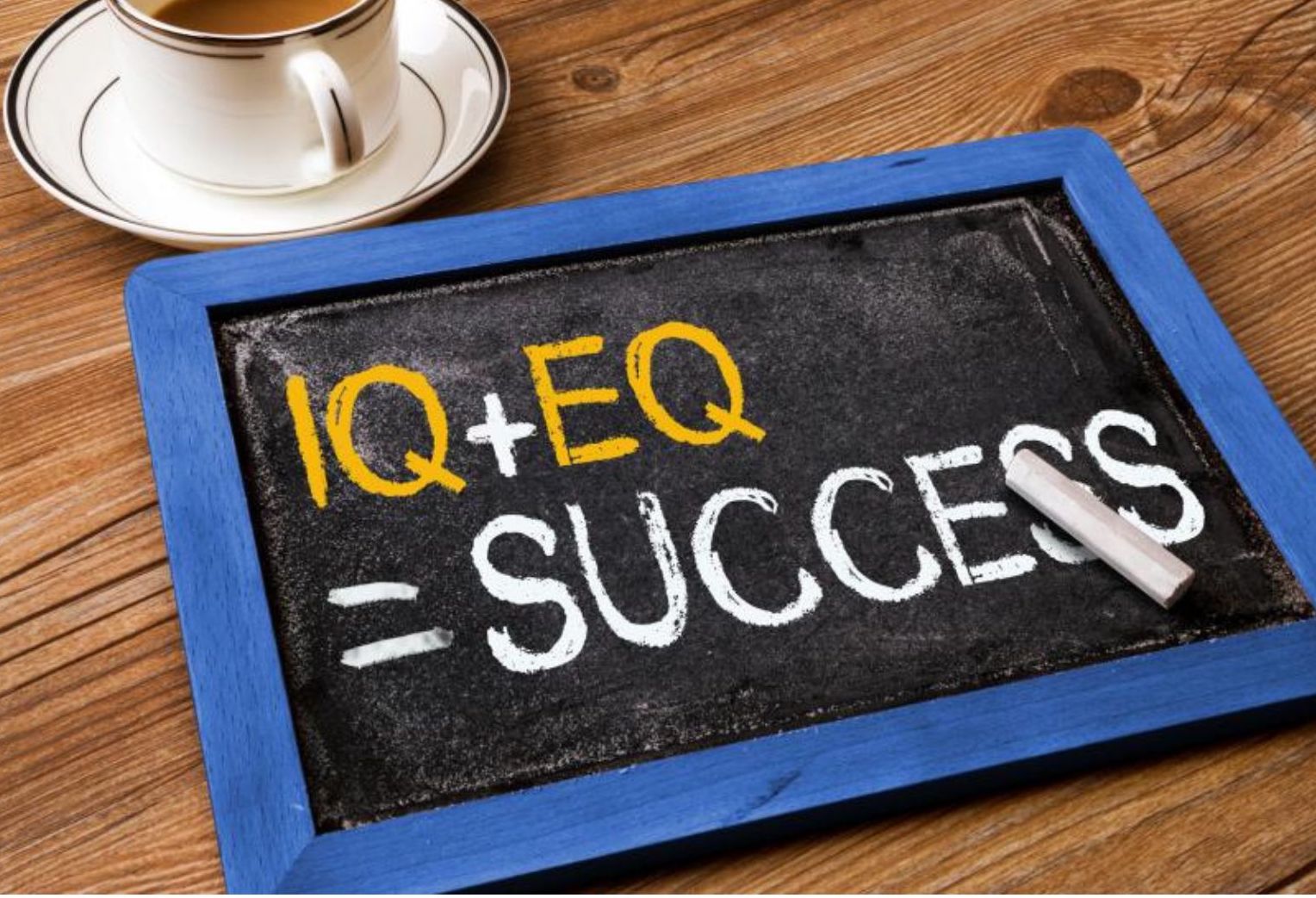
The concept of emotional intelligence has contributed to a more holistic and employee-centered approach to leadership and organizational management.
Emotional intelligence (EI) has a recent history. Earlier on, psychologists and researchers had laid the foundation for the importance of social and emotional factors in human behavior but did not explicitly define emotional intelligence. It was Daniel Goleman, who popularized the concept of Emotional intelligence in the 1990s, highlighting the importance of EI in life and work.
Since then, numerous studies have explored the role of emotional intelligence in various domains, including leadership, education, and mental health. Researchers have developed assessments to measure EI and have found correlations between higher EI and positive outcomes.
This shift is also notable in business schools and the professional learning and development industry, where there’s now a much heavier emphasis on soft skills – communication, learning agility, resilience, curiosity, and empathy, as well as traditional hard skills. Organizations now offer EI training to enhance leadership, teamwork, and interpersonal skills.
Emotional intelligence continues to evolve as researchers explore its nuances and applications. For instance, we all understand that leaders in organizations need high business acumen or IQ in order to succeed. However, Research now shows that IQ is only one part of the equation. Emotional Intelligence is responsible for 58% of job performance across all industries.
The good news is that unlike IQ which is set at birth, EQ can be increased during a person’s lifetime with proper training.
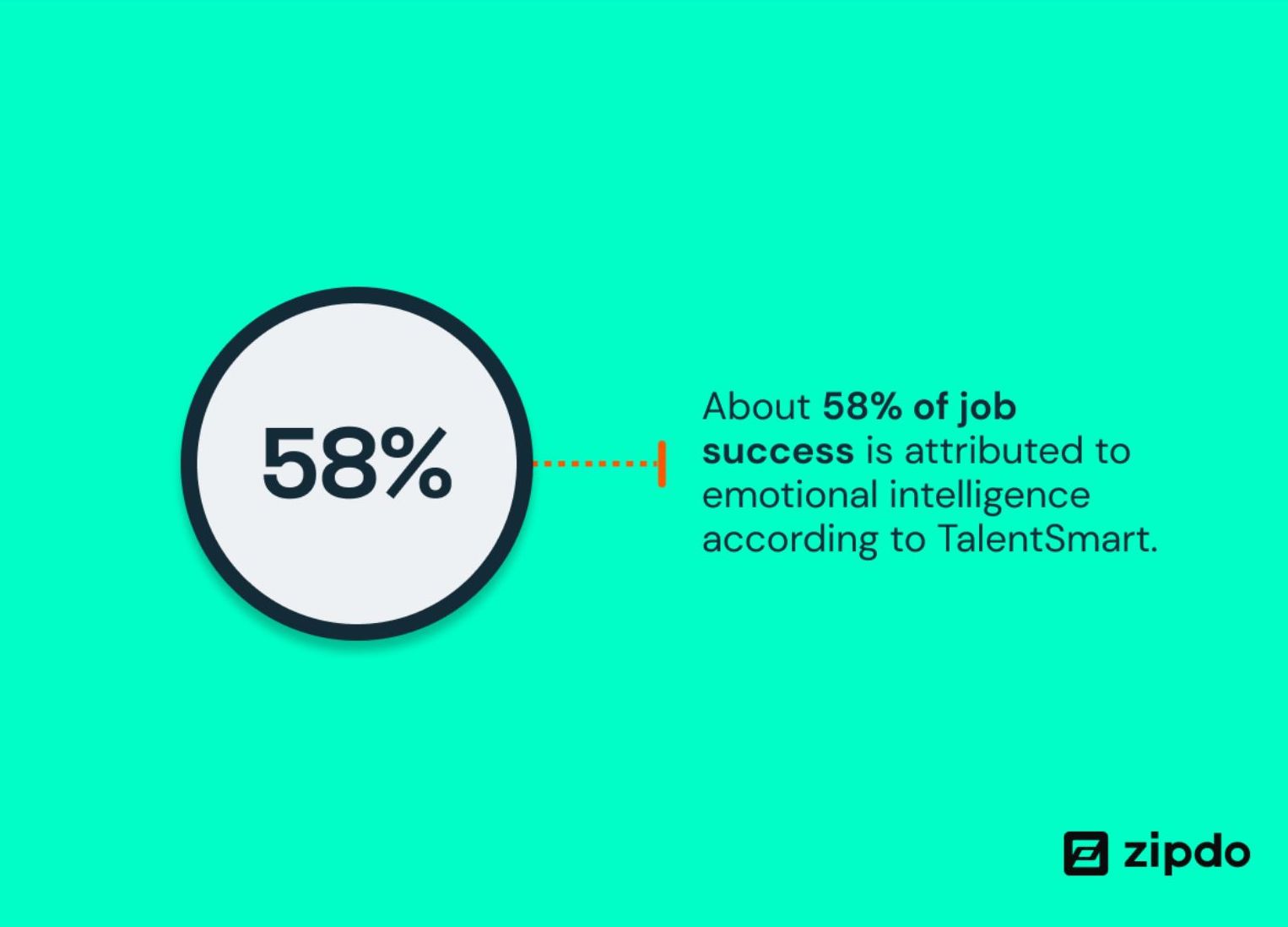
Current Outlook
Emotional Intelligence has emerged as a key factor for soft skills development in leaders. The World Economic Forum (WEF) listed Emotional Intelligence as one of the top 10 most in-demand skills by organizations worldwide according to the 2020 Future of Jobs report.
Additionally, an article from the Harvard Business Review tracking the qualities sought in C-suite positions showed that ‘hard skills’ dropped by 40%, while ‘soft skills’ climbed 30% in the last two decades.
Emotional Intelligence is the building block for most highly desirable soft skills needed to develop leadership competencies. Organizations that target EQ in their leadership development programs are simultaneously addressing a broader set of competencies crucial for success. Some of these competencies include a positive and productive workplace, stronger teams, better decision-making, conflict management, and more.
Research has established a clear link between transformational leadership and high emotional intelligence. High-performing leaders are very aware of the impact of their emotions on themselves and others.
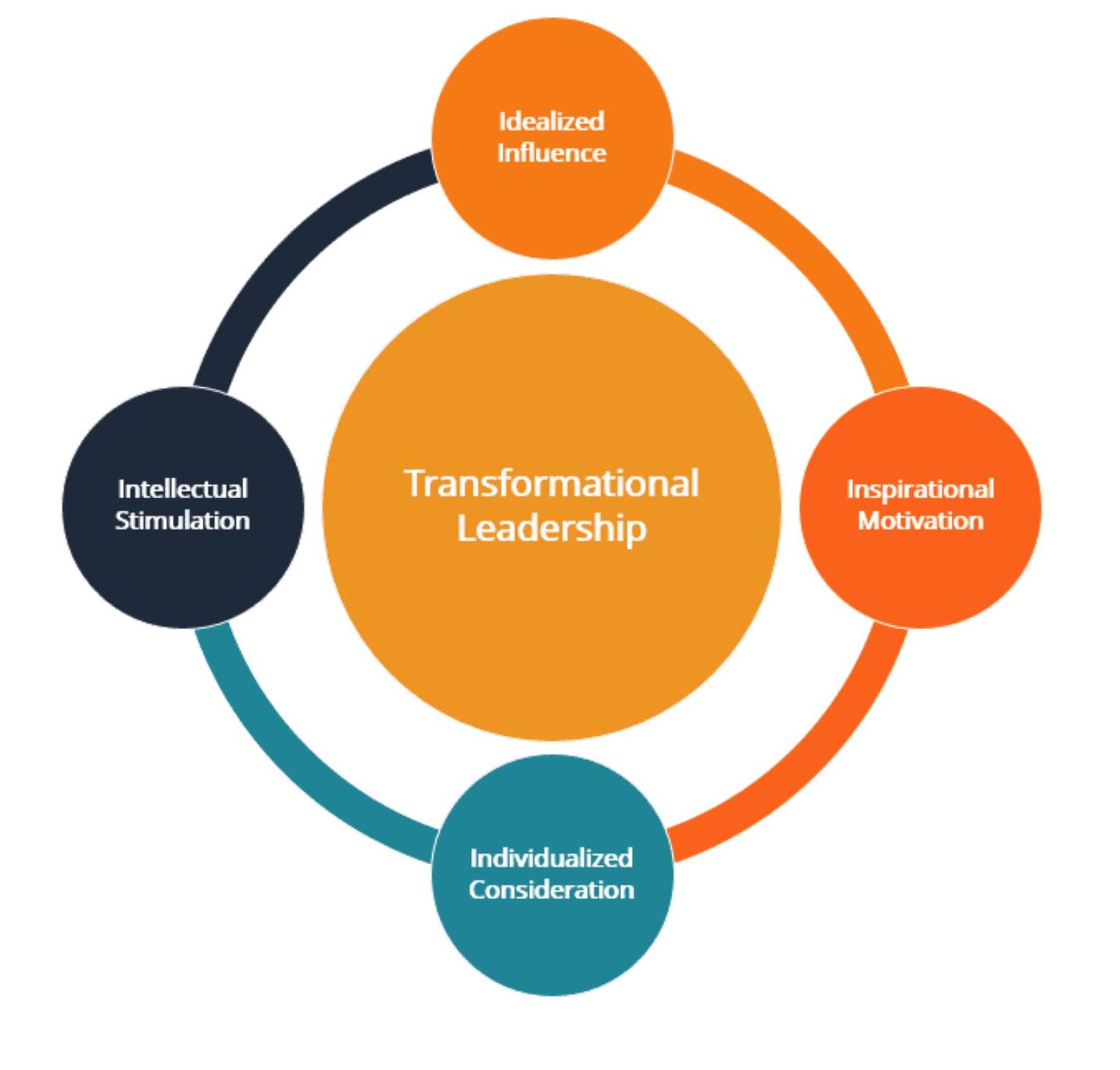
Case studies at organizations all around the world – like PepsiCo, the US Air Force, and Excelitas Technologies – show the ROI of investing in emotional intelligence. While each case focuses on different areas – selection and hiring, retention, productivity – the overall finding is consistent: Investing in high quality emotional intelligence training leads to better business outcomes.
Facing expensive setbacks in its hiring and training of Pararescue Jumper candidates, the US Air Force invested in identifying specific emotional intelligence skills that predicted completion of the highly demanding course. The net savings coming from introducing measurements of those specific emotional intelligence skills into selection reached $190 million.
At PepsiCo, a pilot project with selected leaders showed an 10% increase in productivity and an 87% reduction in turnover, and ultimately to $4M in savings. Encouraged by the results, they expanded the program and the overall economic value has risen to over $30M, with the ROI on leaders’ training costs exceeding 1000%.
At Excelitas Technologies, a global leader in optoelectric and photonic solutions, emotional intelligence training led to 73% of leaders improving their leadership effectiveness31 – based on objective, multirater feedback from others using the Six Seconds SEI360 leadership tool. The leaders were spread across three global regions, showing that emotional intelligence training can work in a global context and at highly technical companies.
How can Organizations and Businesses leverage Emotional Intelligence for Success and Profitability?
In today’s highly competitive and rapidly evolving business landscape, emotional intelligence is emerging as a critical factor that can significantly impact an organization’s success.
When it comes to leadership development, companies are now prioritizing EQ assessments and training in order to build a healthy and resilient workforce. More than 37% of organizations use Emotional Intelligence assessments to help assess and design their leadership development needs. These companies are also perceived to have a positive brand image and are seen as socially responsible and employee-friendly.
The question that most businesses grapple with is, aside from a nicer working environment, is there a financial incentive to growing organizational EQ?
The short answer is yes.
Studies have shown that Emotional intelligence training can yield a 1484% return on investment for organizations.
Let’s look at some of the benefits of EQ training for an organization in greater detail.
Improved Leadership – Managers spend about 15% of their time in conflict resolution. Being an emotionally intelligent leader can pay dividends when it comes to conflict management, inspiring teams, managing stress, staying focused, delivering feedback, empathizing with colleagues, and working together toward a shared goal. A study confirmed that managers and leaders with higher EI were found to be more effective in their roles. They are able to build strong, cohesive, and high-performing teams, resulting in increased productivity and innovation.
Customer & Employee Retention – The reason for losing customers and clients is 70% EQ-related. Companies with emotionally intelligent sales and support teams often outperform competitors in customer satisfaction.
Customers leave companies largely due to customer service-related issues and employees leave companies due to bad managers. A Gallup found that 50% of employees have left a job explicitly because of a manager.
Multiple studies have shown that emotional intelligence decreases turnover, which can be a major source of financial savings. This Emotional Intelligence training will also enable companies to recruit and retain highly emotionally intelligent individuals.
Enhanced Employee Engagement – Gallup describes engagement as the state of being emotionally connected to a workplace, which in turn yields enthusiasm, participation, and commitment to one’s employer and one’s work.
Studies have shown that employees who work for leaders with high EI are 50% more engaged in their jobs. Managers’ behaviors — such as communication and empathy — account for up to 70% of variance in engagement.
It is also confirmed that happier employees are 12% more productive, and emotional intelligence plays a role in fostering workplace happiness.
Productivity & Performance – When workplaces offer a supportive and psychologically safe environment, not only does employee experience improve, but performance, productivity, and outcomes do as well.
75% of careers are derailed for reasons related to emotional competencies, including inability to handle interpersonal problems; unsatisfactory team leadership during times of difficulty or conflict; or inability to adapt to change or elicit trust.
One study found that productivity increased a whopping 40% when HR implemented EIC (emotional intelligence competency)-based programs.
Workplaces that highlight the importance of emotional intelligence find employees work harder and are more creative in their jobs.
Increasing Profit – The revenue and profits of an organization are linked directly to its emotional intelligence capability.
Emotional intelligence training can yield up to 1484% return on investment for organizations. The US Air Force saved $2.7 million in recruiting costs by using an EQ profile.
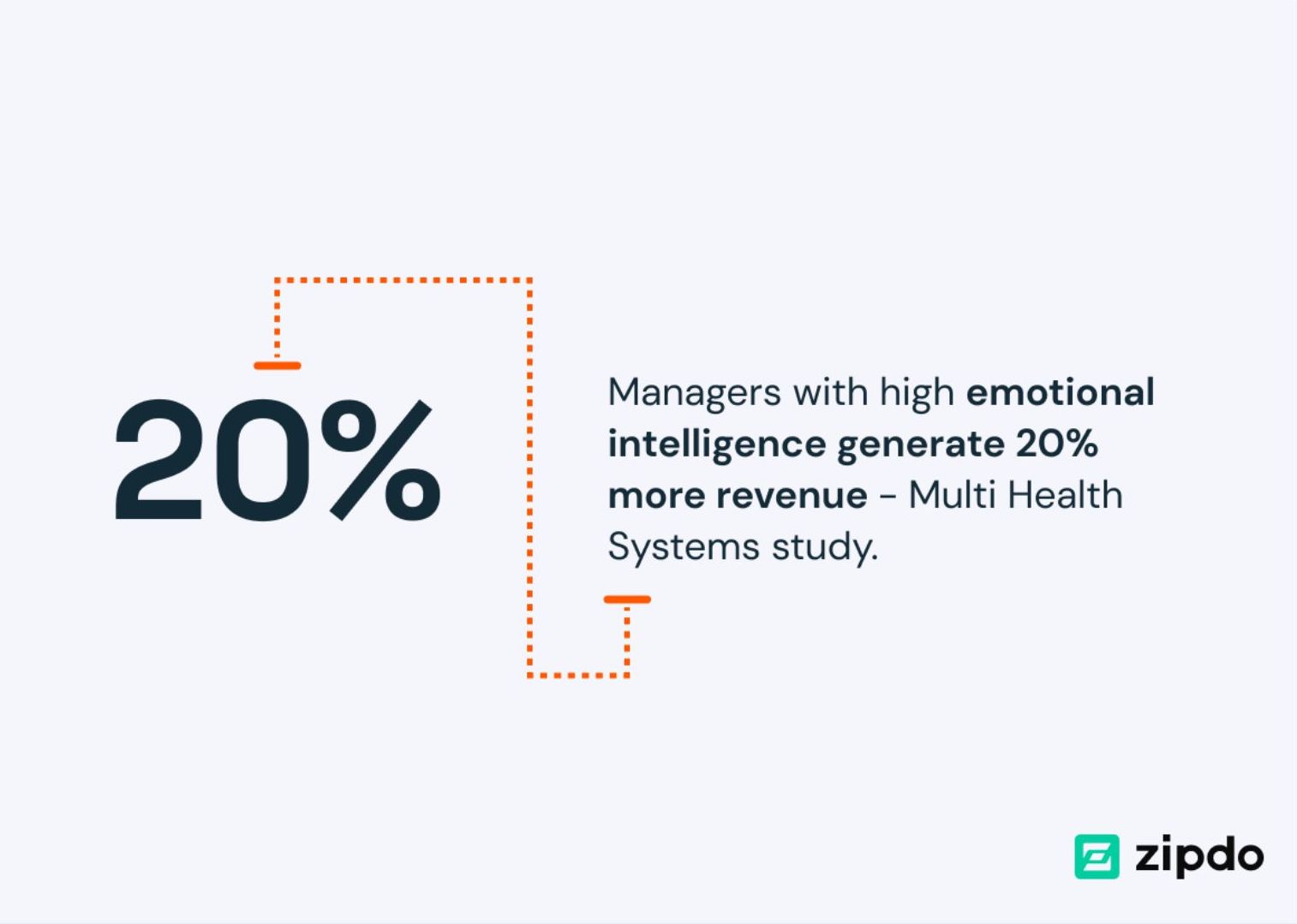
Emotional intelligence in executives has also been linked to higher profit-earning companies. One study found that “executives with higher levels of empathy, self‐regard, and other EQ traits were more likely to yield high profit‐earning companies and better able to manage growth, manage others, train and retain employees”.
The link between emotional intelligence and earnings is so direct that every point increase in emotional intelligence adds $1,300 to an annual salary. These findings hold true for people in all industries, at all levels, in every region of the world. One of the most effective ways to mitigate turnover; increase productivity, brand value, and engagement; and drive profit is to up-skill leaders and managers in emotional intelligence competency training programs.
Stress Reduction, Recovery, and Resilience – Employees with high EI are more resilient in the face of adversity, helping the organization weather challenges effectively. They are better equipped to manage stress and maintain their well-being. Reduced stress levels lead to lower absenteeism, improved focus, and overall better performance.
Additionally, Organizations investing in EI programs are empowering their people to become more adaptable to change, making them better prepared for industry disruptions and market shifts.
Many businesses are focusing on financial recovery and growth post-pandemic, but their people are depleted. The great resignation, layoffs and quiet quitting trends have made it challenging to maintain a strong leadership pipeline.
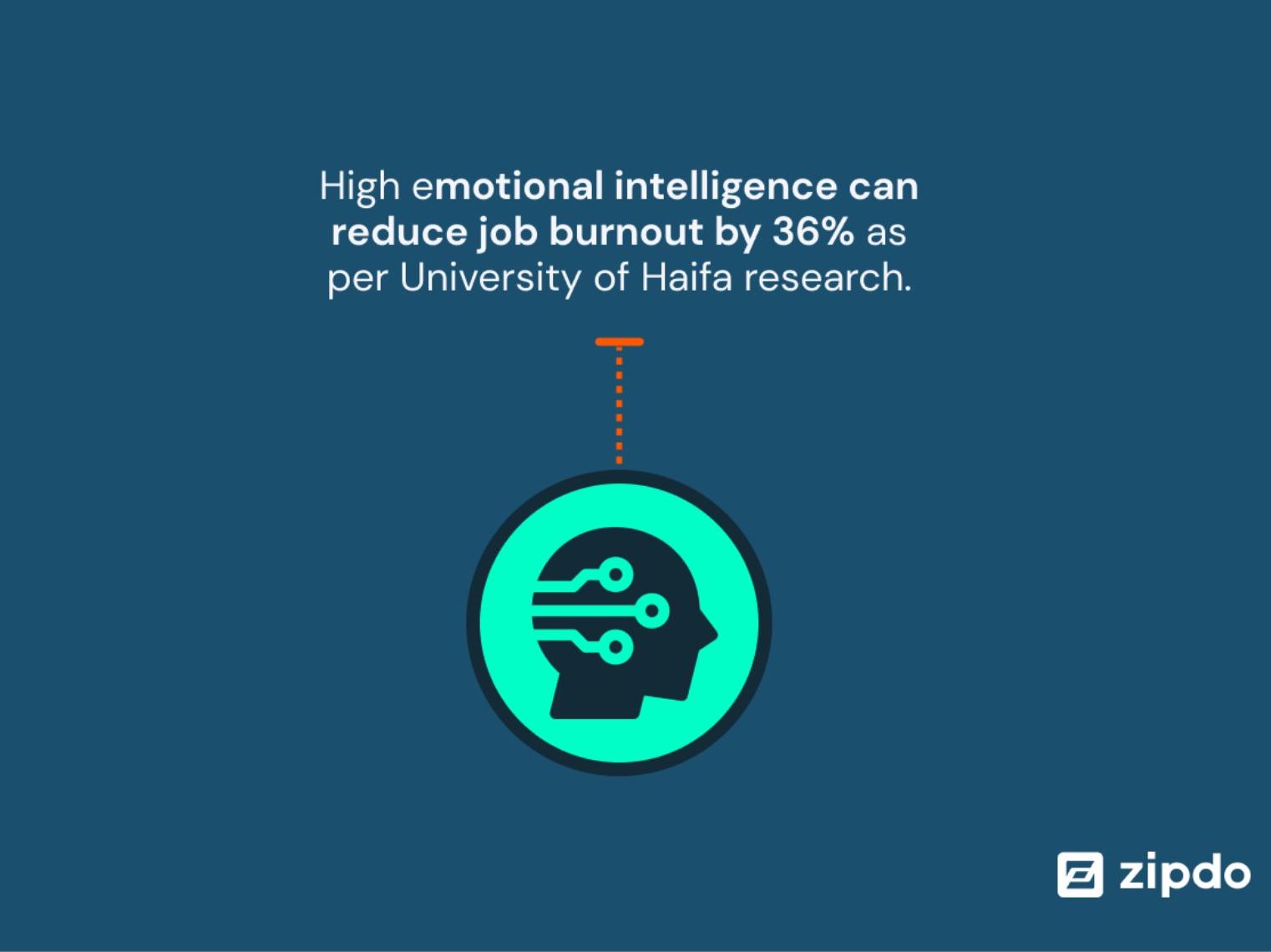
Future Outlook:
Emotional intelligence has ushered in a new management style that places people at the center of organizational success. So far, it has been established that investing in emotional intelligence training and development programs can yield substantial returns on investment by improving leadership effectiveness, employee engagement, customer relations, and overall organizational resilience.
It emphasizes empathy, collaboration, and adaptability, fostering a workplace culture that prioritizes employee well-being, engagement, and growth.
This style of management is not only more effective in today’s complex and dynamic business world but also key to the future. . It is the critical component needed in navigating the complexities of human interaction and innovation in the following aspects of management such as:
Leadership Style: EI will continue to be a fundamental requirement for leaders. Managers who possess high EI will be sought after for their ability to inspire, motivate, and build strong relationships with their teams.
Emotionally Intelligent Teams: Future managers will focus on cultivating emotionally intelligent teams. They will recognize the value of diverse perspectives, empathy, and effective communication in driving innovation and problem-solving.
Employee Well-Being: Managers will prioritize employee well-being, recognizing that emotionally healthy and engaged employees are more productive and loyal. They will create environments that support work-life balance and mental health.
Diversity and Inclusion: Emotionally intelligent managers will champion diversity and inclusion initiatives. They will create inclusive cultures where individuals from diverse backgrounds feel valued and heard.
Adaptability and Change Management: The ability to manage change and uncertainty will be a critical skill for future managers. Emotionally intelligent leaders will help their teams navigate transitions and embrace change with resilience.
Data-Driven EQ: Advances in technology and data analytics may lead to the integration of emotional intelligence metrics into performance evaluations and management tools, providing a more data-driven approach to EI development.
Training and Development: Organizations will invest more in EI training and development programs for managers and employees. These programs will become standard practice to enhance leadership skills, teamwork, and interpersonal effectiveness. Leadership training courses are essential to provide the key leadership development skills as well as creative leadership needed for the changes that are coming.
Remote and Hybrid Work: In a world where remote and hybrid work arrangements are increasingly common, managers will rely on EI to maintain strong connections with their teams, foster trust, and manage virtual work dynamics effectively.
Global Leadership: As organizations expand globally, leaders with high EQ will excel in cross-cultural communication and collaboration, as they can navigate cultural differences and build international relationships.
Ethical Leadership: EI will continue to be closely linked to ethical leadership. Emotionally intelligent managers will prioritize ethical decision-making, transparency, and integrity, fostering trust among stakeholders.
Artificial Intelligence (AI) vs. Emotional Intelligence:
With the revolutionary emergence of AI, some human and interpersonal skills are among the few skills that cannot be replaced. These critical skills include interpersonal communication, stress tolerance, optimism, flexibility, and the ability to inspire and lead others, empathy, and more.
Emotional Intelligence (EI) is a competitive advantage in the age of AI.
The World Economic Forum recently published in the “Future of Jobs” article that:
50% of all employees will need reskilling in the next 5 years, as the adoption of technology increases.
WEF predicts that by 2025, 85 million jobs may be displaced by a shift in the division of labor between humans and machines.
Also, a recent report from IBM confirms that 1.4 billion workers will have to reskill in the next 3 years because of AI.
From another survey, managers and individual contributors agree that communication, interpersonal skills, and self-awareness are all behaviors that will grow in importance in the next 2-5 years. These skills require EQ at their core.
Another significant finding shows that employers are placing a lower premium on technical skills like STEM proficiency, and an increased emphasis on skills like time management and communication skills. The report attributes this change in hiring preferences to AI tools, lowering the necessity for technical skills.
As the business landscape continues to evolve, organizations that recognize the value of emotional intelligence will be better positioned to thrive and excel in an increasingly competitive world. Embracing emotional intelligence is not just a soft skill; it’s a strategic advantage that can drive sustainable business success.
Andrew J. Scott, professor of economics at the London Business School, in an episode of McKinsey Global Institute’s Forward Thinking podcast puts it this way:
“As machines get better at being machines, humans have to get better at being more human…so human empathy, Emotional Intelligence, et cetera, will all become more important for employment.”
Curriculum
EQ Leader – Part 1- Year 1
- Part 1 Month 1 Introducing EI
- Part 1 Month 2 Personal Competence
- Part 1 Month 3 Social Competence
- Part 1 Month 4 Effective Communication
- Part 1 Month 5 Decision-Making
- Part 1 Month 6 Workplace Resilience
- Part 1 Month 7 High-Performing Teams
- Part 1 Month 8 Leadership Styles
- Part 1 Month 9 Conflict Resolution
- Part 1 Month 10 Organizational Culture
- Part 1 Month 11 Change Management
- Part 1 Month 12 Development Roadmap
Program Objectives
The following list represents the Key Program Objectives (KPO) for the Appleton Greene EQ Leader corporate training program.
EQ Leader – Part 1- Year 1
- Part 1 Month 1 Introducing EI – The first workshop will focus on equipping participants with a comprehensive understanding of Emotional Intelligence (EQ) and its profound significance in effective leadership, decision-making, and leading the Self. We will debrief the EQ- i2.0 assessment framework and discuss how the components are integrated into leadership development process. We will lay the foundation for leading self, leading others and leading the organization. Participants will be better equipped to harness their emotional intelligence to become more impactful and empathetic leaders, capable of making informed decisions that resonate with both their teams and organizational goals.
- Part 1 Month 2 Personal Competence – This will be a deep-dive session into two of the critical components of Emotional Intelligence. The focus of this training is on self-awareness and self-management. By delving into self-awareness and self-regulation, individuals will learn to recognize and manage their own emotions, cultivate a deep understanding of their emotional tendencies, and develop effective strategies for emotional regulation. Through this process, participants will embark on a journey of self-discovery, honing their ability to recognize and interpret their emotions, strengths, and limitations. They will gain valuable insights into how their emotions impact their decision-making, relationships, and overall well-being. Participants will learn practical techniques and exercises to enhance their emotional self-control, stress management, resilience, and adaptability, ultimately equipping them to navigate challenges with greater emotional resilience and success.
- Part 1 Month 3 Social Competence – “Social Competence” is an integral component of the Emotional Intelligence framework. This module will address the remaining two pillars of EQ.- social awareness (empathy) and relationship management. Empathy, often regarded as the cornerstone of emotional intelligence, enables individuals to understand and share the feelings and perspectives of others. Through interactive sessions, participants will develop the ability to actively listen, build rapport, acknowledge diverse viewpoints, validate the emotions of team members, and respond empathetically, thereby deepening their relationships and interpersonal interactions. This involves practical exercises, role-playing, and real-life scenarios to ensure that participants not only grasp these concepts intellectually, but are also able to apply them authentically in their daily lives. Participants will be equipped with the skills needed to navigate complex social dynamics.
- Part 1 Month 4 Effective Communication – Effective communication is essential for personal and professional success. Communication is a complex process influenced by a variety of factors that can impact how information is transmitted and received. These factors include: cultural background, personality differences, emotional states, power dynamics, verbal and non-verbal cues, and more. Communication can also be challenging due to the changing nature of work, which includes remote, hybrid and in-person work environments. These factors can impact the clarity and effectiveness of communication Understanding different communication styles is key to building strong relationships, resolving conflicts, and fostering collaboration. Throughout the workshop, participants will engage in interactive activities, role-play scenarios, and self-assessment exercises to identify their preferred communication style and learn how to adapt it to different situations. By the end of this session, attendees will be equipped with practical skills to enhance their communication, leading to more effective, harmonious, and productive interactions in both personal and professional settings.
- Part 1 Month 5 Decision-Making – Emotional Intelligence skills are critical in navigating ambiguity and handling uncertainty. The ability to regulate emotions is vital for decision-making. Emotions provide valuable information and context, but they can also introduce biases and cloud judgment if not managed effectively. Emotional bias can lead to favoring options that align with one’s current emotional state. On the other hand, Emotions, particularly empathy, play a crucial role in social decision-making. They help us understand and connect with others, making it easier to consider their perspectives and needs when making decisions that involve interpersonal relationships. When we can manage and control our emotional reactions, we are better equipped to make rational and well-thought-out decisions. This module will equip participants with the tools, knowledge, and self-awareness needed to make decisions that not only yield positive outcomes but also nurture meaningful relationships and foster personal growth. By the end of this training, participants will be equipped with the knowledge and skills necessary to apply emotional intelligence principles in their day-to-day interactions and decision-making processes.
- Part 1 Month 6 Workplace Resilience – Workplace Resilience is the ability to adapt, bounce back, and thrive in the face of adversity, challenges, and stressors in the workplace. It involves the capacity to withstand pressure, cope with setbacks, and maintain overall well-being while continuing to perform effectively. Resilient individuals and organizations are flexible and open to change. They can adjust their strategies, processes, and mindsets to navigate evolving circumstances and seize new opportunities. Workplace resilience is a crucial skill and attribute for employees and organizations in today’s dynamic and often-unpredictable business environment. Maintaining a healthy balance between work and personal life is essential for resilience. Overworking or neglecting personal well-being can lead to burnout and decreased resilience. This module will focus on leading through ambiguity, working under pressure and stressful circumstances, cultivating a growth mindset, work-life balance, problem solving, learning from failure, and emotionally intelligent frameworks for self-management.
- Part 1 Month 7 High-Performing Teams – Effective communication, mutual trust, and shared values are at the core of this module. This training program aims to equip participants with the essential skills and knowledge needed to not only build cohesive teams but also to lead them toward achieving exceptional results. We will debrief in more detail the EQ 360 assessments. We will discuss the results, focusing on how to leverage areas of strength and ways to sharpen areas of improvement and blind spots. The objective is to create awareness of how managers, peers, and direct reports, perceive the individual’s leadership. Participants will gain insights into how others view them, including their social skills, which are vital for building strong relationships within teams. Based on the EQ 360 competencies, we will explore tools and techniques to foster open dialogue, active listening, and conflict resolution; enabling teams to function harmoniously even in the face of challenges. Participants will also learn how to assess the strengths and weaknesses of team members to optimize their collective potential.
- Part 1 Month 8 Leadership Styles – Emotionally Intelligent Leadership Styles (EILS) are now a crucial aspect of leadership development, enabling leaders to navigate complex challenges and inspire their teams to achieve exceptional results. This training program is designed to equip participants with the knowledge and skills necessary to cultivate and apply emotionally intelligent leadership styles in their professional roles. We will explore 10 leadership styles and their emotional impact on others. Participants will learn how to adapt these leadership styles to suit different team dynamics. Effective leaders often possess the ability to adapt their leadership style to the specific needs of the situation and the people they are leading. They may use a combination of different leadership styles, emphasizing certain aspects of each style as circumstances require. Participants will also learn about the importance of setting clear objectives, providing constructive feedback, and creating an environment that encourages innovation and continuous improvement. Ultimately, the most effective leadership style is one that aligns with the specific goals and context of the organization, supports the development and well-being of team members, and achieves desired outcomes. Effective leaders often have a repertoire of leadership styles that they can draw upon and the wisdom to know when to use each style to achieve the best results.
- Part 1 Month 9 Conflict Resolution – Emotional intelligence (EQ) plays a pivotal role in effectively managing and resolving conflicts. The primary objective of this training is to help participants understand the fundamental principles of emotional intelligence and how it influences their ability to navigate conflict. This training will focus on the application of emotional intelligence in various conflict resolution scenarios. Participants will learn how to recognize the signs of escalating tension and employ EI techniques to de-escalate situations effectively. They will also discover strategies for active listening, constructive communication, and empathy-building, all of which are essential skills for resolving conflicts with empathy and diplomacy. They will also be able to employ effective communication techniques, including active listening and assertive expression, to facilitate conflict resolution. The integration of emotional intelligence into conflict resolution is a key step toward creating a more harmonious and collaborative organizational culture. This sets the stage well for the next module.
- Part 1 Month 10 Organizational Culture – “Coachability” is the new buzzword. Coaching is moving beyond individual sessions to creating a coachability culture within organizations. A healthy organizational culture that models coachability on all levels sets the tone for how employees interact, make decisions, and approach their work. A culture of Coachability fosters psychological safety, which increases employee engagement, satisfaction, and retention, which, in turn, boosts productivity and innovation. It promotes effective communication, teamwork, and adaptability, enabling the organization to navigate challenges and seize opportunities. This module will expand the concept of EQ beyond individuals and teams to developing an organizational culture that fosters coachability. Every individual has a part in shaping a positive and emotionally intelligent organizational culture. This workshop will underscore the connection between EI and organizational success. Participants will explore case studies of companies that have integrated EI into their cultures, resulting in improved employee satisfaction, reduced turnover, and enhanced customer relationships. They will also gain practical strategies for fostering a culture of emotional intelligence within their organization beyond the training the program, thereby maintaining open communication, coachability, trust, and a shared sense of purpose.
- Part 1 Month 11 Change Management – We know that Organizations must navigate constant change to remain competitive and adaptive. However, less time and resources are invested into helping employees build the emotional skills necessary to navigate change. This module will equip participants with a profound understanding of the role emotional intelligence plays in effectively managing and leading change within their organizations. By fostering self-awareness, self-regulation, empathy, and social skills, individuals can navigate the complex terrain of change with greater resilience and success. Participants will gain insight into their own emotional intelligence, recognizing their strengths and struggles during times of Change. They will learn how to harness their emotions to make informed decisions, manage stress, and maintain connection with superiors, colleagues, and team members during change management initiatives. Participants will also acquire the knowledge and tools to plan, implement, and sustain successful change initiatives within their organizations. By integrating emotional intelligence principles into their change management toolkit, participants will be better equipped to inspire and lead their teams through periods of transition, ensuring that change is embraced, rather than feared. Individuals will also learn how to communicate change effectively, address resistance, and engage stakeholders at all levels.
- Part 1 Month 12 Development Roadmap – This final workshop will focus on crafting individual leadership development plan based on each participant’s self-score and 360 assessment feedback for their ongoing growth and development. The development plan will cover areas such as: Self-Awareness: Participants will identify strategies to enhance self-awareness, enabling them to recognize their emotions and how these emotions impact their decision-making and interactions with others. Self-Regulation: Individuals will identify techniques to effectively manage their emotions, stay calm under pressure, and make rational decisions even in high-stress situations. Empathy: Leaders will include strategies to develop their ability to cultivate more empathy, which is the ability to understand and connect with the emotions of others, fostering stronger interpersonal relationships and effective collaboration within their teams. Motivation: Participants will design strategies for how to harness their emotional energy to drive personal and team motivation, promoting resilience in the face of challenges and setbacks. Leadership: Participants will explore real-world case studies and scenarios where emotional intelligence is pivotal for successful leadership, and they will develop action plans to integrate EI principles into their leadership styles and development plans. Feedback and Coaching: Leaders will learn how to integrate constructive feedback and coaching to team members to help them develop their emotional intelligence, ultimately creating a more emotionally intelligent organization. My continuous support, coaching and feedback throughout the 12 months will scaffold this process of developing emotionally intelligent leaders, creating a solid roadmap for sustaining desired outcomes.
Methodology
EQ Leader
This program will tackle the trifecta of leadership development – leading Self, leading others and leading the Organization – through the lens of emotional intelligence. This program is anchored on Emotional Intelligence because without the fundamental ability to understand emotions and manage them effectively in the workplace, most leadership development programs will fall short of creating a desirable long-term outcome. The intent of this program is to enable a coachability culture where feedback, trust and open communication is the norm organizationally.
EQ is made up of specific and measurable set of skills. As a Program Pre-Work, participants will each take an EQ assessment.
We will use the Emotional Quotient Inventory (EQ- i 2.0) and EQ 360 assessment, which is the world’s leading measure for emotional intelligence, with over 25 years of research and experience behind it.
Past users in Fortune 500, government, military, non-profit, athletic, entertainment, financial services, pharmaceutical, policing, healthcare, hospitality, legal, insurance, airlines, social service, higher education, consulting, leadership, and industries of all kinds already attest to the quality of the EQ-i 2.0 instrument.
The EQ- i 2.0 measures the individual’s emotional intelligence while the EQ 360 assesses an individual’s performance based on feedback from direct reports, manager and colleagues.
The assessments provide detailed areas of strength and areas of development, as well as an in-depth understanding of an individual’s emotional functioning in five broad areas known as the scales:
1. Self-perception
2. Self-expression
3. Interpersonal
4. Decision Making
5. Stress Management
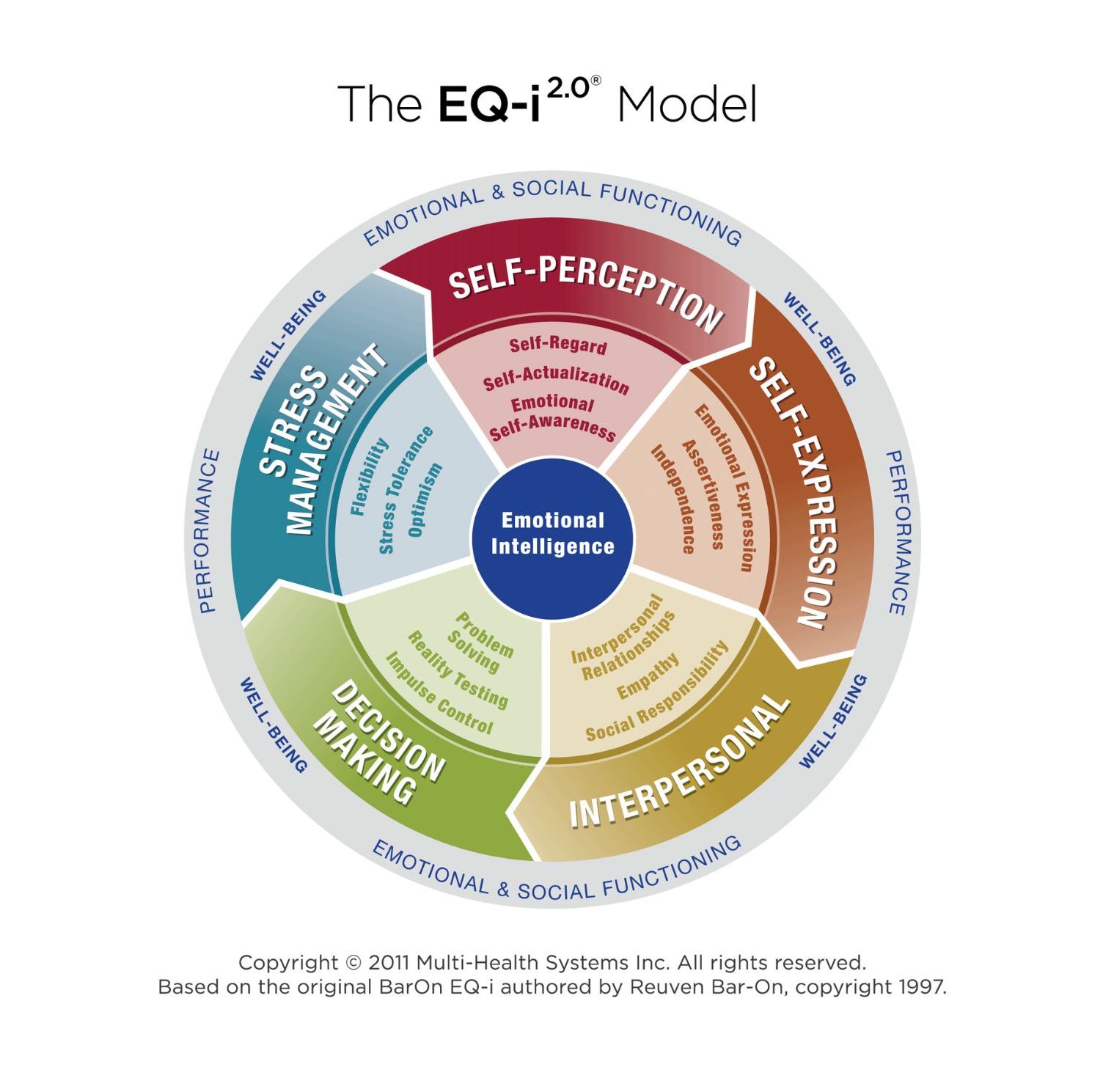
These 5 main scales are further broken down into 15 sub-scales as shown below:
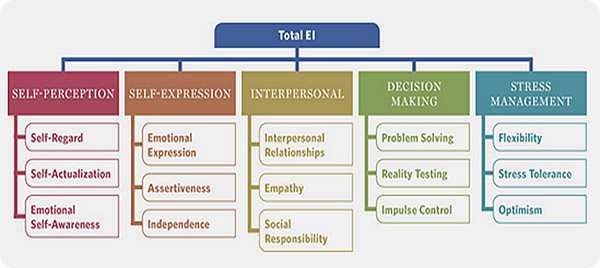
Multiple studies have shown that high EQ in leaders is linked to traits required for effective and transformational leadership. The training program is custom-designed to leverage the assessment results.
The workshops will be grounded in the concept of transformational leadership such as:
Empathetic Leadership: Empathy is a crucial quality for modern leaders. Managers with high EQ can connect with their employees on a deeper level, recognizing their emotions and needs. This empathetic approach enhances trust and loyalty within the team.
Collaborative Decision-Making: The new management style places a greater emphasis on involving employees in decision-making processes. EQ Leaders actively seek input and ideas from their teams, valuing diverse perspectives.
Conflict Resolution and Communication: EQ equips managers with the skills to navigate conflicts constructively. Managers and leaders will be equipped to facilitate open and honest communication, mediate disputes, and build bridges between team members.
Adaptive Leadership: Adaptability, Problem-solving, Stress Tolerance are some of the behaviors with the largest gaps in individual contributors and managers from a recent survey.
EQ encourages adaptability and resilience in the face of change. Leaders with high EQ can guide their teams through transitions and uncertainties, ensuring that the organization remains agile and responsive to evolving circumstances.
One of the critical objectives of the training is to build interpersonal skills necessary for collaboration, teamwork and workplace culture. Half way through the program, we will transition to optimizing team performance using The EQ 360 assessment results, which provides a broader insight to individuals from work colleagues, manager and direct reports, resulting in a broader picture of reality.
The training program incorporates self-reflection, skill-building exercises, and coaching to cultivate more emotional intelligence. Participants will engage in interactive discussions that explore the fundamental components of emotional intelligence, such as self-awareness, self-regulation, empathy, and social skills. We will also explore real-life scenarios, role-playing, and feedback sessions to provide practical experiences for honing EQ skills.
Time and support are critical in implementing this leadership development program. As an executive coach, the coaching support provided throughout the program is key to the success of the corporate training.
Upon completion of the program, individuals will be empowered with knowledge and resources for coaching, and on-going leadership development strategies aligned with company vision and culture.
Participants will be equipped to identify talent with potential for promotion, support their growth, and develop managers in people skills that complement technical competencies. Participants will be capable of improving team performance and to support leadership development programs with one-to-one coaching.
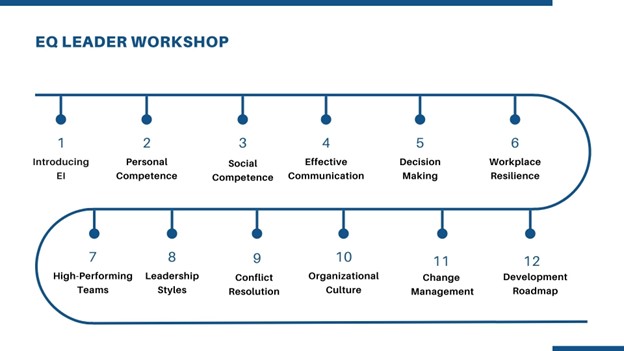
The roadmap and process of the 12 workshops are designed to build upon each other, progressing from individual development to team dynamics, and culminating in organizational transformation. Here’s a detailed explanation of how these workshops interconnect and build a comprehensive development program:
Phase 1: Individual Development
1. Introducing EI (Emotional Intelligence): This foundational workshop introduces the concept of Emotional Intelligence, its importance, and the key components. Participants gain an understanding of how EI impacts personal and professional success.
2. Personal Competence: This session delves deeper into the intrapersonal aspects of EI, focusing on self-awareness and self-management. Participants learn techniques for recognizing and regulating their emotions.
3. Social Competence: Building on personal competence, this workshop explores social awareness and relationship management. Participants develop skills for understanding and influencing others, crucial for effective interaction.
Phase 2: Interpersonal Skills and Team Dynamics
4. Effective Communication: This workshop emphasizes the importance of clear, concise, and empathetic communication. It covers verbal, nonverbal, and written communication skills essential for workplace success.
5. Decision-Making: Participants learn decision-making frameworks and strategies to make informed and balanced choices. This session enhances critical thinking and problem-solving abilities.
6. Workplace Resilience: Focuses on developing resilience to cope with stress and adversity. Participants learn strategies to maintain productivity and well-being in challenging situations.
7. High-Performing Teams: This workshop transitions the focus from individual to team dynamics. It covers characteristics of high-performing teams, collaboration techniques, and ways to foster a supportive team environment.
Phase 3: Leadership and Conflict Resolution
8. Leadership Styles: Explores various leadership styles and their impact on team performance and organizational culture. Participants identify their leadership style and learn how to adapt it to different situations.
9. Conflict Resolution: Provides tools and techniques for resolving conflicts constructively. Participants learn to manage disagreements and facilitate solutions that promote harmony and collaboration.
Phase 4: Organizational Transformation
10. Organizational Culture: Examines the elements that shape organizational culture and its influence on employee behavior and performance. Participants explore ways to cultivate a positive and inclusive culture.
11. Change Management: Focuses on strategies for managing organizational change effectively. Participants learn how to lead change initiatives, overcome resistance, and ensure successful implementation.
Phase 5: Development Roadmap
12. Development Roadmap: This final workshop synthesizes all previous sessions, helping participants create a personal and organizational development roadmap. It includes setting goals, planning ongoing development, and ensuring continuous improvement.
Summary
• Phase 1: Individual Development lays the foundation by focusing on personal and social competence, essential for understanding and managing oneself and others.
• Phase 2: Interpersonal Skills and Team Dynamics builds on this foundation by enhancing communication, decision-making, and resilience, crucial for effective teamwork.
• Phase 3: Leadership and Conflict Resolution equips participants with leadership skills and conflict resolution techniques to manage and lead teams effectively.
• Phase 4: Organizational Transformation extends the focus to organizational culture and change management, preparing participants to lead and sustain organizational growth.
• Phase 5: Development Roadmap ensures participants leave with a clear plan for continuous development at both individual and organizational levels.
This structured progression ensures that participants develop the necessary skills step-by-step, starting from self-awareness to leading organizational change, making the program comprehensive and impactful.
Industries
This service is primarily available to the following industry sectors:
Retail
History:
Retail refers to the process of selling goods or services directly to consumers for personal use. It encompasses a wide range of businesses and formats, including physical stores, online stores, and even mobile sales. Retailers source products from manufacturers or wholesalers and make them available to the public, often with markups to cover operating costs and generate profit. The retail industry plays a significant role in the economy, providing consumers with access to a diverse array of products and driving economic growth. It involves various aspects, such as merchandising, marketing, customer service, and inventory management, all aimed at satisfying consumer needs and preferences.
Retail 30 years ago, was significantly different from what it is today. Back in the day, the “brick and mortar” was the main shopping experience, where customers would physically visit physical stores or shops to make purchases. The shopping experience was primarily confined to the physical store’s operating hours and location. Online shopping was virtually non-existent.
Retailers relied heavily on in-store displays, signage, and customer service to attract and engage shoppers. Payment was typically made in-person at the checkout counter, and interactions with sales staff played a significant role in influencing buying decisions.
Technology in retail was minimal. Point-of-sale systems were basic, and inventory management was often done manually. There were no smartphones or mobile apps for shopping. Customer service was primarily provided in-person or over the phone. Online customer support and chatbots were not available. International shopping was less accessible. Customers had limited exposure to products from other countries.
Current:
The retail sector has evolved from traditional brick-and-mortar stores into a dynamic, tech-driven environment that caters to diverse consumer needs and preferences.
Adoption of technologies like point-of-sale systems, inventory management software, and customer relationship management (CRM) systems has streamlined operations and improved customer experiences. Contactless payment methods, mobile wallets, and digital currencies are becoming more accepted and integrated into the retail experience, providing convenience and security for customers.
Technological advancements have improved supply chain management, leading to more efficient inventory management and quicker restocking. Data analytics and AI have enabled retailers to tailor offerings to individual preferences, enhancing customer engagement and loyalty.
Known as Omni-Channel approach, Retailers now offer a seamless shopping experience across multiple channels, integrating brick-and-mortar stores, online platforms, and mobile apps.
Social media platforms have become key marketing tools, allowing retailers to reach and engage with a wider audience. The proliferation of smartphones has led to mobile commerce, enabling consumers to shop on-the-go.Along with social media, globalization allows Retailers to expand globally, reaching new markets and diversifying their customer base.
Retail is the largest private-sector employer in the country, responsible for about 42 million jobs. The top three retail companies of the world are Walmart, Amazon and Costco and are based in the United States. In 2022, the United States achieved over 7 trillion U.S. dollars in total retail market revenue.
The pandemic accelerated many trends in the retail industry. Since the pandemic, research shows that 71% of companies reported increased usage of online marketplaces. 45% of shoppers buy online then pick up in-store.
Successful retailers are reimagining their offerings to meet consumers both online and in-store, creating an integrated experience that blends channels. 9 of the top 10 ecommerce websites are run by retailers that also operate bricks-and-mortar stores.
Future outlook:
The pandemic accelerated many existing trends in the retail industry with respect to fulfillment and logistics, purchasing behavior and payments, and marketing via social media channels. If there was ever a question about the future of online retail, the pandemic solidified eCommerce as a mainstay. It’s predicted that eCommerce sales will reach $6.54 trillion globally by 2023.
The retail industry continues to significantly impacts the economy of the United States in several ways. Retail is one of the largest employers in the U.S. In 2020, it provided employment for around 31.6 million people, accounting for about 22% of all jobs in the country. The industry’s vast employment opportunities contribute to reducing unemployment rates and stimulating economic activity.
Consumer spending on retail products and services is a major driving force behind economic growth in the U.S. In 2020, the retail industry contributed approximately $3.9 trillion to the U.S. GDP, accounting for about 22% of the total economic output.
Total retail and food services sales in the U.S. amounted to approximately $6.1 trillion in 2020.
Retail will continue to be at the forefront of adopting new technologies and innovations, such as e-commerce, mobile payments, and personalized shopping experiences. This drives technological advancements and encourages investment in research and development. Retailers are driving this transformation through innovative thinking and smart investments that improve the customer experience regardless of how they want to shop.
Technology
30 years ago, the technology industry was significantly different from what it is today. The Internet was in its infancy, and the World Wide Web had just been introduced. Web browsing was text-based, and websites were basic with limited graphics and interactivity. Personal computers were becoming more common, but they were slower, had limited processing power, and lacked the multimedia capabilities of today’s devices. Software was mostly distributed physically, often on floppy disks or CDs. Operating systems like Windows 3.0 and 3.1 were prevalent, and graphical user interfaces were gaining popularity.
Mobile phones were large, bulky, and primarily used for making calls. The concept of smartphones and mobile apps were nonexistent. Storage devices were much smaller in capacity compared to today’s standards. Hard drives were measured in megabytes, not gigabytes or terabytes. Dial-up internet connections were the norm, leading to slow data transfer speeds and limited online capabilities.
Social interaction largely happened offline. Face-to-face meetings, phone calls, and physically mailing letters were the primary means of communication. Video games were popular but were limited in terms of graphics and complexity compared to modern gaming. Streaming services and on-demand entertainment weren’t available.
Current Outlook:
Technology is responsible for driving more of the U.S. economy than any other profession aside from healthcare. The U.S. technology (tech) industry was estimated to reach a market value of $1.8 trillion by the end of 2022.
The U.S. tech market accounts for 35% of the total world market. The U.S. tech industry is expected to grow by 5.4% in 2023.
There are more than 585,000 tech companies in the United States. The Big Four (Amazon, Apple, Google and Facebook) are collectively worth $4 trillion.
There were 264,500 tech industry jobs added to the market in 2022.
The tech industry is characterized by rapid innovation and disruption across various sectors .The top five categories for Technology are: Software, Hardware, Telecom, IT and business services, and Emerging technologies.
Emerging technologies like artificial intelligence, machine learning, blockchain, and 5G have been driving significant changes and creating new opportunities. . Automation and AI are reshaping industries by streamlining processes and making predictions based on data analysis.
The pandemic accelerated the development and adoption of health technology, including telehealth services, remote patient monitoring, and digital health platforms. Streaming services, online gaming, and virtual events gained popularity as people sought remote entertainment options during lockdowns.
The pandemic has also accelerated the adoption of remote work and digital collaboration tools. Many tech companies shifted to remote work models, and technologies supporting virtual meetings, remote project management, and cloud services experienced increased demand.
With increased digitalization, cybersecurity and data privacy became paramount concerns. Cyberattacks and data breaches prompted greater emphasis on securing digital infrastructure and personal information.
As technology’s impact on society grows, discussions around regulation and ethical considerations related to AI, data usage, and tech monopolies have gained prominence.
Future outlook:
Information technology is one of the fastest growing sectors in the world. Jobs in the tech industry are continually on the rise, according to reports.
Workforce growth rates are expected to double those of other industries, with some categories reaching 4-5 times the current rate by 2030 AI and machine learning are set for significant growth and expansion. In fact, machine learning, deep learning and NLP (natural language processing) are the three skills that are most in-demand skills on Monster.com.
91.6% of Fortune 1000 companies have plans to invest more in big data and AI initiatives.
Artificial Intelligence is expected to contribute $15.7 trillion to the economy by the year 2030.
The global machine learning market is to grow to $152.24 billion in 2028.
Tech companies continue to drive innovation through research and development, leading to breakthroughs in technology, healthcare, communication, and more. This innovation not only improves products and services but also has a ripple effect across other industries, and is becoming an integral part of daily life.
The tech industry generates a significant number of high-paying jobs across various sectors, including software development, engineering, data analysis, and management. This will leads to increased employment opportunities and contributes to reducing unemployment rates.
Tech hubs like Silicon Valley, Seattle, and Boston continue to drive urban development by attracting talent and investment. These areas experience infrastructure growth, increased property values, and a thriving local economy.
Due to high skill demand, the tech industry continues to promote education in science, technology, engineering, and mathematics (STEM) fields, which in turn enhances the overall human capital and workforce readiness in the future.

Travel & Tourism
History:
Around 30 years ago, Travel agents played a significant role in planning trips. Booking flights, accommodations, and activities often required direct communication with travel agents or companies, either in person or over the phone. The internet was not as widely accessible or integrated into daily life as it is today. International travel was still a bit less accessible and affordable for many. Flights were often more expensive, and there were fewer options for direct flights between certain destinations, leading to longer travel times and potential layovers. Tour packages and group tours were more common due to the challenges of planning individualized trips. Customizing travel experiences was less prevalent.
Access to real-time information about travel destinations, weather, and local recommendations was limited. Travelers relied heavily on guidebooks and recommendations from friends and family.
Advertising for travel and tourism largely relied on print media, television, and radio. Promotional materials such as travel magazines, newspaper ads, and tourism commercials played a key role in inspiring travel.
Currency exchange was a more significant concern for international travelers. Credit and debit cards were not as universally accepted, and travelers often needed to carry cash in the local currency. Language barriers could present more significant challenges for travelers in certain regions, as translation tools and language learning apps were not as advanced.
Over the past decades, the steady growth of the travel and tourism industry has led to the development of infrastructure such as airports, roads, hotels, and other facilities to accommodate the increasing number of travelers. These infrastructures have become a significant of employment. Jobs were created in hotels, airlines, restaurants, travel agencies, and related sectors.
Current Outlook:
The digital revolution has drastically altered travel behaviors. The advent of the internet, smartphones, and social media has empowered travelers with instant access to information, enabling them to independently research destinations, compare prices, and book accommodations and flights directly. Online review platforms offer insights from fellow travelers, shaping decisions. Also, advancements in transportation technology have led to increased connectivity, more flight options, and cheaper airfares, contributing to the rise of global tourism. While sustainable and experiential travel has gained prominence, efforts are being made to mitigate over-tourism through diversification of destinations and community-focused initiatives. Overall, technology-driven changes and evolving travel preferences have led to a more democratized and diversified travel and tourism landscape.
Today, Travel and tourism contribute a substantial portion to most countries Gross Domestic Product (GDP). Globally, travel and tourism’s direct contribution to GDP was approximately 5.8 billion U.S. dollars in 2021.
Considering how profitable the industry is, many countries have an incentive to invest in policies that enable the development of travel and tourism. In 2021, the leading countries and territories in the travel and tourism development index (TTDI) were Japan, the United States, and Spain, receiving a score of 5.2 points each out of seven.
Although travel and tourism contribute significantly to the global GDP, both were severely impacted by the global coronavirus (COVID-19) pandemic that began in early 2020. Lockdowns, travel restrictions, and health concerns led to a significant decrease in international and domestic travel. Many airlines, hotels, and tourism-related businesses faced financial challenges, and recovery was expected to be gradual. There was a trend towards outdoor and nature-based travel, as people sought destinations that allowed for social distancing. Remote and less-crowded locations gained popularity over densely populated urban areas.
As the industry entered the recovery period of the COVID–19 pandemic, travel and tourism’s share of GDP has been steadily increasing.
Future outlook:
The COVID-19 pandemic had a profound impact on travel and accelerated the adoption of health and safety protocols. These measures encompassed enhanced cleaning procedures, health screenings, vaccination requirements, and flexible booking options to ensure travelers’ well-being. Also, due to travel restrictions and safety concerns, many travelers experienced in 2020, this trend is leading to the discovery of local hidden gems and a boost to domestic economies.
With remote work becoming more commonplace, a trend towards “workations” are emerging, where individuals combined travel with work. Destinations offering conducive environments for remote work are expected to gain popularity.
Another major trend that the travel and the tourism industry will have to adapt to in the future is the increasing global interest in environmentally friendly travel.
According to a survey conducted in March 2021, 83 percent of travelers worldwide believed that sustainable travel was important to them.
Looking ahead, Contactless and Tech-Driven Experiences will be increasingly common in travel and tourism. The integration of technology, such as mobile apps, virtual reality, and contactless payment systems, will enhance the overall travel experience. These technologies could streamline processes, improve safety measures, and provide personalized recommendations.

Media & Marketing
History:
The media and marketing industry 30 years ago was significantly different from today’s landscape. Traditional media channels such as television, radio, newspapers, and magazines held a strong sway over advertising and communication. The majority of advertising budgets were allocated to these platforms. Television and radio commercials were major advertising channels, often involving high production costs.
Direct mail campaigns, including physical catalogs and flyers, were common ways to reach potential customers. These campaigns required meticulous targeting to ensure they reached the right audience.
The Internet was in its early stages, and digital marketing was virtually nonexistent. Websites were basic, and e-commerce was in its infancy. Social media as we know it today did not exist.
Tracking the effectiveness of marketing efforts was more challenging. Data and analytics were not as advanced as today, making it harder to measure ROI accurately.
Producing marketing materials took more time due to limited technology and resources. Designing, printing, and distributing materials required longer lead times.
Building personal relationships and networking played a significant role in the industry. Word-of-mouth referrals and recommendations were vital for businesses.
The advertising landscape was less saturated, with fewer businesses vying for consumer attention. This meant that individual campaigns had the potential to stand out more easily.
The technological advancements and digital transformation that have taken place since then have revolutionized the industry, leading to new opportunities and challenges in reaching and engaging consumers.
Current Outlook:
The media and marketing industry has been undergoing significant transformations driven by technology, evolving consumer behaviors, and societal changes.
Today, 55% of marketing is digital. The global digital advertising and marketing market was estimated at $350 billion in 2020 and is projected to reach $786.2 billion by 2026.
The media and marketing industry generates a substantial number of jobs, ranging from content creation (writers, designers, videographers) to marketing professionals, sales teams, and administrative roles. This contributes to reducing unemployment rates and boosting consumer spending.
The media and marketing sector generates substantial revenue through advertising, subscriptions, content licensing, and sponsorships. This revenue flows through various segments, including traditional media (TV, radio, print) and digital platforms (social media, streaming services, online advertising).
The U.S. digital advertising and marketing market is currently estimated at $460 billion.
In the US, the total digital advertising spend in 2021 was $436 billion versus offline advertising at $196 billion.
The industry continues to shift towards digital platforms, with a strong focus on online advertising, social media, influencer marketing, and content creation. Traditional media, such as print and TV, has been adapting to incorporate digital strategies. Streaming services have disrupted traditional media consumption, leading to the rise of original content production by platforms like Netflix, Amazon Prime, and Disney+. User-generated content and short-form videos on platforms like TikTok have gained immense popularity.
Media content such as movies, TV shows, and documentaries promote destinations, lifestyles, and cultural experiences. This influences tourism and boosts related sectors like hospitality and travel.
Personalized and localized marketing strategies are gaining traction as consumers seek content and products that resonate with their specific needs and preferences.
Future outlook:
The media and marketing industry drives technological advancements, as companies constantly adapt to changing consumer preferences and behaviors. This fosters innovation in areas like digital marketing, data analytics, artificial intelligence, and immersive experiences.
Media content reflects and shapes cultural norms, values, and societal trends, contributing to cultural discussions and fostering a shared national identity. The industry will continue to be a prominent player in reshaping society.
Data analytics and insights play a crucial role in crafting personalized marketing campaigns. AI and machine learning are used to analyze consumer behavior, enabling companies to target their audiences more effectively.
The integration of e-commerce into media and marketing is pronounced, especially with social commerce, shoppable posts, and influencers directly promoting products.
Heightened awareness of data privacy is leading to stricter regulations (like GDPR and CCPA), impacting how companies collect, store, and use customer data for marketing purposes.
Virtual and augmented reality technologies are being explored for immersive marketing experiences, from virtual store tours to interactive ad campaigns.
Consumers are increasingly conscious of a brand’s values and ethical practices, prompting companies to incorporate sustainability and social responsibility into their marketing efforts.
Remote work, accelerated by the COVID-19 pandemic, continues to impact advertising production, creative collaboration, and content creation processes.
With the rise of AI Assistants and voice-activated devices like smart speakers, optimizing content for voice search is becoming a attractive option for marketers.
Healthcare
History:
The healthcare industry 30 years ago was notably different from what it is today. Medical technology and treatment options were not as advanced as they are now. Diagnostic tools, surgical techniques, and medical equipment were less sophisticated, leading to different standards of care and treatment outcomes.
Patient records were predominantly paper-based, making record-keeping and sharing of medical information more cumbersome and time-consuming. Electronic health records (EHRs) were not widely adopted yet.
Communication among healthcare professionals, as well as between doctors and patients, relied heavily on traditional methods like phone calls, fax machines, and face-to-face interactions.
Digital communication and telemedicine were not as prevalent.
The insurance landscape was different, with fewer regulations and coverage options. Insurance claims and billing processes were often more manual and complex compared to today’s streamlined systems.
Patient engagement and empowerment were not as emphasized. Patients had less access to medical information and resources, and shared decision-making with doctors was less common.
The focus on preventive care and overall wellness was not as pronounced as it is today. The healthcare system was more oriented towards treating illnesses rather than promoting healthy lifestyles.
Pharmaceutical regulations and the availability of medications have evolved. Drug advertising and direct-to-consumer marketing were less prevalent, and the process for drug development and approval was different.
Current Outlook:
Healthcare is the largest and fastest-growing industry in the U.S. and globally.
This growth represents a range of factors, from new healthcare treatments and services to better coverage, higher utilization, and rising prices across many of the industry’s sectors, including: Health insurance, Healthcare marketing, Pharmaceuticals, Healthcare tech and Health administration. Healthcare administrative spending accounts for 8% of the U.S. GDP, compared to 3% in other nations.
The healthcare industry is worth more than $800 billion in the United States. For comparison’s sake, the global health industry is worth $12 trillion.
An impressive 65% of revenue comes from patient care.
This sector encompasses a wide range of services including hospitals, outpatient care centers, nursing and residential care facilities, and social assistance services. It had been growing steadily over the years due to factors like an aging population and advances in medical technology. As such, the healthcare sector is one of the most complex in the U.S.
In 2020, healthcare spending accounted for approximately 17.7% of the U.S. GDP, which amounted to over $3.8 trillion.
Healthcare spending represented 18.3% of the U.S. economy in 2021, with $4.3 trillion in revenue, which increased from 5% just 60 years ago.
It is estimated that one in eight U.S. citizens is employed in the healthcare industry.
14% of U.S. adults are employed in the healthcare industry.
The U.S. Health Care and Social Assistance sector boasts a total of 907,426 businesses, 20 million employees, over $1.0 trillion in annual payroll as of 2018, along with more than 1.2 million job openings per year.
Future outlook:
Healthcare employment is expected to increase by 15% through 2029 (an additional 2.4 million jobs), which is much faster than the average for all occupations. Growth will happen so fast that by 2030, America will have about 122,000 unfilled posts for physicians.
By 2024, different healthcare sectors are forecasted to earn the following profits: Healthcare IT: $27.9 billion, Distribution and pharmacies: $18.9 billion, Payer: $116.6 billion, Provider: $197.8 billion, Medtech: $72.1 billion, Pharma: $169.9 billion.
The integration of technology in healthcare has accelerated, with telemedicine, electronic health records (EHRs), and digital health solutions becoming more prevalent. This was further emphasized by the COVID-19 pandemic, which prompted a significant shift towards remote healthcare services.
There’s a growing recognition of the importance of mental health and well-being. Mental health services, awareness campaigns, and destigmatization efforts are gaining momentum within the industry.
Advances in genomics and precision medicine are driving more personalized treatment approaches. Tailoring medical treatments to an individual’s genetic makeup is becoming more feasible, leading to improved outcomes.
Healthcare is moving away from fee-for-service models toward value-based care. Providers are incentivized to focus on patient outcomes and quality of care rather than the volume of services provided.
With the increased use of digital health tools, ensuring the security and privacy of patient health data has become a critical concern. Regulations like HIPAA in the United States and GDPR in Europe are shaping how data is handled.
Artificial intelligence (AI) and data analytics are increasingly being utilized to enhance diagnostic accuracy, treatment planning, and operational efficiency within healthcare organizations.
The COVID-19 pandemic highlighted the need for robust global health systems and preparedness for pandemics and other health crises. This will continue to evolve.
Many countries are experiencing an aging population, which puts pressure on healthcare systems to provide adequate care for elderly individuals.
Locations
This service is primarily available within the following locations:

San Jose
History:
San Jose, California, is located in the southern part of the San Francisco Bay Area. It is situated in the northern region of the state of California, USA. The city is approximately 50 miles (80 kilometers) south of San Francisco and is part of Santa Clara County.
In its early years, San Jose’s economy was primarily centered on agriculture. By the late 1800s, San Jose had established itself as a prosperous agricultural hub, producing a variety of crops such as fruits, vegetables, and wine grapes. The region’s orchards earned it the nickname “The Valley of Heart’s Delight.”
In the 1950s and 1960s, several semiconductor and technology companies, including Fairchild Semiconductor, were founded in the area, leading to the rapid growth of the microelectronics industry. However, it was the post-World War II era that laid the groundwork for the city’s technological evolution. As veterans returned from the war, San Jose witnessed an influx of population and the beginning of its transition to a technology-driven economy.
The region experienced a transformation with the emergence of the high-tech industry. Tech giants such as IBM and Lockheed Martin established a presence, foreshadowing Silicon Valley’s future dominance in technology and innovation.
Throughout the 1970s and 1980s, San Jose cemented its position as the epicenter of innovation. Companies like Intel and Apple emerged, changing the way people communicate, compute, and interact. The city’s landscape transformed from orchards to high-tech campuses, and venture capital firms flourished to support the burgeoning startup culture. This marked a turning point from its agricultural past to a technology-driven future. The dot-com boom of the late 1990s and early 2000s further accelerated San Jose’s commercial growth, attracting startups and entrepreneurs.
Current Position:
Today, San Jose, renowned as the heart of Silicon Valley, stands as the third-largest city in California and a focal point of the global tech revolution. As of 2021, the population of San Jose, California, was estimated to be around 1.03 million people.
Also, San Jose’s GDP was estimated to be around $275 billion, making it one of the wealthiest cities in the world in terms of economic output.
The median household income is approximately $110,000, significantly higher than the national average due to the presence of high-paying tech jobs.
The unemployment rate is generally lower than the national average, hovering around 4% to 5%.
The commercial real estate market in San Jose reflects the city’s desirability as a business destination. Prime office spaces are in demand as companies seek to establish or expand their presence within this innovation-driven environment.
However, the city faces certain challenges, including housing affordability and transportation infrastructure. The high cost of living has led to discussions about ensuring a balanced quality of life for residents and employees alike.
The city is a hub of innovation. San Jose and the broader Silicon Valley area attract a significant amount of venture capital investment due to the concentration of tech startups. . It consistently ranks high in terms of patent creation and technological advancements.
The city hosts a plethora of tech giants, established companies, and a thriving startup ecosystem. This is evidenced by the consistent influx of venture capital investments and the proliferation of cutting-edge research and development initiatives. Key players such as Adobe, Cisco Systems, and eBay, among others, continue to contribute to the city’s economic vitality.
San Jose’s commitment to sustainable practices and renewable energy has given rise to the emergence of green technology companies, solidifying the city’s position as an environmental leader. This diversification complements its tech dominance and adds resilience to the local economy.
Future Outlook:
As the heart of Silicon Valley, San Jose is expected to experience dynamic shifts across various industries, driving economic diversity and prosperity.
The technology sector will remain a linchpin of San Jose’s economic landscape. With a thriving ecosystem of tech giants, startups, and research institutions, the city will continue to lead in software development, hardware innovation, and emerging technologies such as artificial intelligence, blockchain, and quantum computing. The presence of influential companies like Apple, Google, and Cisco Systems ensures that San Jose remains at the forefront of technological advancement.
The city’s commitment to sustainability and green technology is also likely to play a pivotal role. San Jose’s emphasis on renewable energy, smart infrastructure, and eco-friendly practices positions it to become a model for sustainable urban development. This not only aligns with global environmental goals but also presents opportunities for green tech startups and research initiatives.
Additionally, San Jose’s diversification into advanced manufacturing, biotechnology, and life sciences is anticipated to bolster its economic resilience. With a skilled workforce and collaborative research environment, the city is well-equipped to drive breakthroughs in healthcare, biotech research, and medical device manufacturing.
In the realm of urban mobility, San Jose will redefine transportation through autonomous vehicles, smart transportation systems, and interconnected mobility networks. This will alleviate congestion, reduce carbon emissions, and enhance overall quality of life.
While technology will remain the cornerstone, diversification will play a pivotal role. San Jose’s vibrant startup ecosystem will continue to evolve, encompassing sectors such as advanced manufacturing, aerospace, and financial technology.
To ensure inclusive growth, San Jose will emphasize workforce development and education, bridging the digital divide and creating a talent pipeline for emerging industries.

San Francisco
History:
San Francisco is located on the west coast of the United States, in the state of California. It is situated on a peninsula at the northern end of the San Francisco Peninsula, bordered by the Pacific Ocean to the west, the San Francisco Bay to the east, and the Golden Gate Strait to the north. The city is known for its iconic landmarks, diverse culture, and significant contributions to technology, arts, and finance.
San Francisco’s commercial history began with the transformative Gold Rush of the mid-19th century. The city’s population exploded practically overnight as fortune seekers from around the world flocked to its shores in search of precious metals.
The commercial landscape quickly adapted to serve the needs of miners and settlers, giving rise to supply stores, saloons, and transportation services. The city’s port became a vital gateway, facilitating the inflow of prospectors and goods, shaping the foundation of San Francisco’s trading legacy. San Francisco’s economic prowess continued to grow with the establishment of financial institutions and maritime industries.
The construction of piers and wharves facilitated international trade, enabling the city to emerge as a primary entry point for goods from Asia. Maritime industries flourished, and financial institutions like the Bank of California laid the groundwork for San Francisco’s position as a financial center. The completion of the First Transcontinental Railroad in 1869 revolutionized San Francisco’s commercial landscape. The city’s strategic location on the West Coast made it a prime destination for goods traveling across the nation.
San Francisco experienced yet another transformative shift with the emergence of the technology industry. The region’s proximity to renowned educational institutions like Stanford University attracted brilliant minds, leading to the birth of Silicon Valley. San Francisco became a focal point for tech giants and startups alike, driving innovation, investment, and economic growth.
Current Position
San Francisco is a global tech hub, driven by the presence of tech giants like Salesforce, X (formerly Twitter), and Uber, as well as thriving startups. It’s a part of the renowned Silicon Valley tech ecosystem. The city remains a magnet for tech talent and venture capital, fostering innovation in areas such as artificial intelligence, biotech, and fintech.
San Francisco is a major financial center, housing the headquarters of Wells Fargo, Charles Schwab, and other financial institutions. It’s also a hub for venture capital firms.
San Francisco Bay Area population is around 883,255. This city is the 17th largest city in the US. Additionally, it is the 4th largest city in California, ranking behind Los Angeles.
In 2022, the GDP (Gross Domestic Product) of the San Francisco metropolitan area was approximately $669 billion., the third largest in the State of California.
Along with the neighboring Bay Area, San Francisco has a strong presence in biotech and life sciences, with research institutions and companies leading advancements in healthcare.
The city is home to prestigious universities and research institutions, contributing to educational and research sectors. The city consistently ranks among the most expensive places to live in the United States due to its high housing costs, which is often attributed to the tech industry’s influence on the housing market. The city continues to grapple with affordability challenges, impacting both residents and businesses. High living costs and steep commercial rents have led to some businesses reconsidering their presence. However, initiatives to support small businesses and affordable housing solutions are being pursued to address these concerns.
San Francisco’s limited space and high demand have led to innovative real estate development, such as high-rise buildings and mixed-use spaces.
The city’s iconic landmarks, such as the Golden Gate Bridge and Alcatraz Island, make it a popular tourist destination. The tourism industry contributes significantly to the local economy.
San Francisco’s diverse population and rich cultural scene contribute to a vibrant arts, film and entertainment industry, attracting media production, and events, as well as visitors which supports local businesses. The city’s diverse culinary scene and thriving hospitality industry cater to both residents and visitors.
San Francisco’s progressive mindset continues to attract creative individuals and forward-thinking entrepreneurs. This fusion of cultures and ideas contributes to an environment that encourages innovation across various industries, from arts and entertainment to technology and beyond.
The Port of San Francisco plays a role in international trade and commerce, particularly with its connection to the Pacific Rim. San Francisco’s well-developed public transportation system, including iconic cable cars, contributes to the city’s accessibility and urban mobility.
Future Outlook
The future commercial outlook of San Francisco, California, will continue to be marked by innovation, diversification, and a focus on sustainability. As a global tech and business hub, the city’s economic trajectory is likely to be influenced by various factors that shape its unique landscape.
The technology sector will undoubtedly remain a cornerstone of San Francisco’s economy. The city’s role as a breeding ground for startups, venture capital investments, and technological advancements is expected to persist. Emerging technologies such as artificial intelligence, blockchain, and biotech are likely to drive new waves of innovation, attracting both established tech giants and up-and-coming disruptors to the region. As the demand for digital solutions across industries rises, San Francisco is poised to remain at the forefront of tech innovation.
Diversification will also be a key trend in the city’s commercial outlook. While technology will continue to dominate, San Francisco is expected to witness growth in other sectors such as sustainable energy, biotechnology, and advanced manufacturing. The drive towards clean and renewable energy sources aligns with the city’s commitment to sustainability and environmental consciousness. This diversification will contribute to a more resilient economy that’s less susceptible to the fluctuations of a single industry.
Additionally, the concept of remote and flexible work is likely to have a lasting impact on the commercial landscape. The hybrid work model that emerged in the wake of the pandemic may persist, influencing office space requirements and potentially encouraging a shift towards more collaborative and creative work environments. This shift could lead to the reimagining of office spaces as innovation hubs, fostering collaboration and networking among professionals.
However, challenges like affordable housing, income inequality, and rising living costs remain significant issues in San Francisco’s future. Addressing these challenges will be crucial to maintaining a thriving commercial environment. Policymakers and business leaders will need to work together to create a balance between economic growth and social inclusivity, ensuring that the benefits of the city’s commercial success are accessible to all residents.

San Diego
History:
San Diego is located in Southern California, United States. It is situated along the coast of the Pacific Ocean, near the border with Mexico. It’s known for its beautiful beaches, pleasant climate, and diverse cultural attractions.
San Diego’s commercial roots can be traced back to its role as a Spanish settlement, initially focused on supporting the maritime trade between the Americas and Asia. The city’s sheltered bay and proximity to the Pacific Ocean positioned it as a vital port for ships seeking refuge and supplies. It served as a supply point for Spanish missions and presidios, laying the foundation for future trade and commerce.
The region’s fertile soil and mild climate enabled the cultivation of crops like citrus fruits, avocados, and olives. Additionally, cattle ranching gained prominence, leading to San Diego’s nickname as the “Birthplace of California Ranching.”
The late 19th century marked the beginning of San Diego’s deep connection with the U.S. military. The establishment of military bases, including the Naval Training Center and Marine Corps Recruit Depot, contributed to the city’s economic growth and stability. San Diego’s natural harbor played a pivotal role in the development of the Navy’s Pacific fleet, further solidifying its commercial significance.
The mid-20th century saw San Diego transform into a tourism destination, capitalizing on its pristine beaches, mild climate, and attractions like Balboa Park and the San Diego Zoo. Simultaneously, the aerospace industry gained prominence, with companies like General Dynamics and Convair establishing a strong presence. The city’s role in aerospace culminated with the production of the Apollo spacecraft.
By the latter part of the 20th century, San Diego emerged as a technology and innovation hub, particularly in the fields of telecommunications, biotechnology, and software development. The city’s research institutions, including the University of California, San Diego, fostered collaboration between academia and industry, giving rise to a thriving startup ecosystem.
Current Position:
San Diego’s commercial landscape showcases a mix of traditional sectors and emerging industries. The city’s technology prowess, defense strength, tourism appeal, focus on sustainability, trade advantages, and ongoing development efforts all contribute to a multifaceted economic landscape.
Population of San Diego was estimated to be around 1.43 million people as of 2021. Also, The GDP (Gross Domestic Product) of San Diego was estimated to be around $255 billion.
San Diego’s technology sector continues to thrive, with a focus on industries like biotechnology, software development, and telecommunications. The city is a renowned biotech hub, hosting a multitude of biotech companies and research institutions. Additionally, the presence of research universities and innovation centers contributes to a steady influx of breakthroughs and advancements in technology.
San Diego’s strategic military presence plays a significant role in its commercial outlook. With naval bases, defense contractors, and military research centers, the city maintains a robust defense industry. This sector not only drives employment but also fosters innovation in areas like maritime technology and defense systems.
The tourism and hospitality sector, a cornerstone of San Diego’s economy, is rebounding after challenges posed by the pandemic. The city’s picturesque coastline, cultural attractions, and favorable climate continue to draw visitors, contributing to the local economy through accommodation, dining, and entertainment.
San Diego’s commitment to sustainability is reflected in its growing renewable energy industry. The city has made strides in solar power adoption, electric vehicle infrastructure, and green building initiatives. This emphasis on environmental responsibility opens up opportunities for companies involved in clean energy and eco-friendly technologies.
Located near the U.S.-Mexico border, San Diego benefits from its strategic geographic position for cross-border trade and international business. Trade with Mexico is a significant contributor to the economy, leading to opportunities in logistics, transportation, and cross-border commerce.
San Diego’s real estate market remains dynamic, with ongoing residential and commercial development projects. The demand for office spaces, mixed-use developments, and housing continues to drive construction and real estate activities.
Future Outlook:
San Diego focus on technology, sustainability, tourism, life sciences, and defense, positioning it for global success. Its tech hub reputation will strengthen as the innovation ecosystem, including research institutions, startups, and tech giants, leads advancements. Strengths in biotech, cybersecurity, and wireless tech will drive collaborative academia-industry ventures, enhancing its pioneering research and development status.
The commitment to sustainability will boost San Diego’s economy. Emphasis on renewable energy, smart grids, and eco-friendly urban planning will attract investments and create a flourishing green sector. With a favorable climate, the city is set to lead in sustainable practices and environmentally conscious businesses.
As a prime tourist spot, San Diego’s allure remains robust with its coastal beauty, cultural sites, and vibrant dining scene drawing global visitors. Evolving travel trends will prompt investments in eco-tourism, experiential travel, and digital amenities for enhanced tourism experiences.
The life sciences sector will expand further, building on its significant contribution. Leading research institutions and biotech firms will drive medical innovations. The fusion of technology and life sciences will unlock pioneering breakthroughs.
San Diego’s ties to defense and aerospace will persist, supported by defense firms and military bases. Expertise in naval and aerospace R&D will attract government contracts and private partnerships as defense technology evolves.

Sacramento
History:
Sacramento is located in the northern part of the state of California, USA. It serves as the capital city of California and is situated in the Central Valley region, east of the San Francisco Bay Area. The city is positioned along the Sacramento River and is approximately 90 miles (145 kilometers) northeast of San Francisco.
Sacramento’s commercial journey dates back to the mid-19th century when John Sutter established a trading post along the banks of the Sacramento River. This outpost served as a vital link for pioneers traveling to California during the Gold Rush of 1849. As the Gold Rush brought a flood of fortune seekers, the demand for supplies skyrocketed, giving birth to a thriving market for goods and services.
The completion of the First Transcontinental Railroad in 1869 marked a pivotal turning point in Sacramento’s commercial history. The city was chosen as the western terminus of the railroad, solidifying its position as a transportation hub and catalyzing significant growth. The influx of people, goods, and capital facilitated the expansion of various industries, including agriculture, manufacturing, and trade.
Agriculture emerged as a cornerstone of Sacramento’s commercial success. The region’s fertile soil and favorable climate made it ideal for cultivating a variety of crops. As the city’s population grew, so did the demand for food. Farmers in the surrounding areas supplied Sacramento’s markets with fresh produce, creating a local food economy that thrived for decades.
The Sacramento Delta played a vital role in the city’s commercial growth. The waterways provided a natural transportation network, enabling goods to be transported efficiently to distant markets. The development of steamboats and later, the construction of levees, further enhanced the accessibility of the Delta region. The city’s historic Old Sacramento district, with its well-preserved waterfront, is a testament to this era, offering a glimpse into the bustling commercial activity of the past.
The 20th century brought new economic challenges and opportunities to Sacramento. The construction of highways and the growth of the automobile industry led to urban sprawl and changing consumer patterns. Sacramento adapted by diversifying its economic base, embracing technology, and focusing on education and research. The city became a hub for government activities, housing the state capital and numerous state agencies.
Current Position:
As the capital of California, Sacramento’s economy is influenced by government activities, including state government agencies, legislative offices, and administrative functions.
As of 2023, the population of Sacramento is 528,306. The average household income in Sacramento is $93,320. In 2002, the Civil Rights Project at Harvard University named Sacramento as America’s Most Diverse City.
The GDP (Gross Domestic Product) of Sacramento was estimated to be around $123 to $135 billion in 2021.
Sacramento also has a diverse economy that includes sectors such as healthcare, education, technology, agriculture, and manufacturing. The city is home to several major healthcare providers, hospitals, and medical facilities.
Given its strategic location, the city provides access to both major metropolitan centers like San Francisco and emerging tech hubs like Silicon Valley. This geographical advantage has spurred economic expansion across various sectors, leading to an increasingly vibrant business environment.
Likewise, Sacramento’s proximity to fertile agricultural land contributes to its prominence in agriculture and food processing. The region is known for its rice, almonds, wine grapes, and other agricultural products.
The arts and culture industry also contribute to the economy through galleries, theaters, museums, and cultural events. The Sacramento River and the city’s waterfront areas offer recreational opportunities, contributing to tourism and local businesses.
The city’s downtown district is undergoing revitalization, attracting commercial developers and investors who recognize the potential for growth. The development of mixed-use spaces, incorporating offices, retail outlets, and residential complexes, is reshaping the urban landscape and fostering a live-work-play environment that appeals to businesses and professionals alike.
Future Outlook
As the state capital and a vital part of the broader Northern California region, Sacramento’s commercial landscape is undergoing significant shifts that promise a prosperous trajectory. With its strategic location, commitment to innovation, improved infrastructure, and diversifying industries, the city is carving out a niche for itself in the competitive landscape of California’s economy.
One of the key drivers of Sacramento’s commercial potential lies in its strategic geographic location. Situated within reasonable proximity to both the San Francisco Bay Area and the Sierra Nevada foothills, the city enjoys a unique advantage. It can harness the economic spillover from the tech-driven Bay Area while also attracting businesses and residents seeking a more affordable and conducive environment. This balance places Sacramento on a trajectory to become an extension of the Silicon Valley ecosystem, attracting startups, tech firms, and entrepreneurs looking for growth opportunities without the exorbitant costs of its neighboring cities.
Additionally, Sacramento’s commitment to fostering innovation and entrepreneurial spirit is evident through its initiatives and infrastructure development. The development of innovation districts, co-working spaces, and incubators signifies a concerted effort to create an ecosystem that nurtures startups and small businesses. As Sacramento continues to invest in research, education, and technology, it’s becoming increasingly attractive to companies seeking a collaborative environment for innovation and growth.
The city’s transportation and connectivity are also integral to its commercial future. With an expanding international airport and plans for improved transit systems, Sacramento is poised to be a regional transportation hub. This enhanced accessibility will undoubtedly facilitate business interactions and make the city more appealing for conventions, conferences, and other events, fostering economic activity and growth.
As Sacramento diversifies its economy, industries beyond traditional sectors are gaining traction. The city’s focus on sustainability and green initiatives has spurred growth in renewable energy, cleantech, and sustainable agriculture. Additionally, healthcare and life sciences are growing as the city invests in research institutions and medical facilities, attracting professionals and businesses that contribute to its economic vitality.

Los Angeles
History
Los Angeles is located in the southern part of the state of California, United States. It is situated on the west coast of the United States, near the Pacific Ocean. Los Angeles is a major city known for its diverse culture, entertainment industry, and iconic landmarks.
The commercial history of Los Angeles began with its establishment as El Pueblo de Nuestra Señora la Reina de los Ángeles de Porciúncula in 1781 by Spanish settlers. Initially centered around agriculture and trade, the pueblo slowly evolved into a regional hub. In the mid-19th century, the Gold Rush fueled migration to California, propelling Los Angeles towards greater economic prospects. However, it was the arrival of the transcontinental railroad in the 1870s that truly transformed the city’s outlook.
The railroad connected Los Angeles to the rest of the nation, marking a turning point in its commercial history. This newfound accessibility enabled the city to export its agricultural produce, particularly citrus fruits, to distant markets. The once modest pueblo began to flourish, gradually embracing industrialization and diversification. As the 20th century dawned, oil discovery in the region brought yet another wave of economic growth. The extraction and refining of oil not only boosted local employment but also attracted investment, paving the way for the city’s urban expansion.
However, it was the emergence of the entertainment industry that truly catapulted Los Angeles into global prominence. The early 20th century saw the birth of Hollywood, the entertainment capital of the world. The film industry, with its glitz and glamour, created an aura that attracted talent, investors, and visitors from around the globe. This in turn spurred the development of ancillary businesses, including hospitality, tourism, and related services, further contributing to the city’s economic prosperity.
As Los Angeles continued to evolve, its geographic advantage as a port city on the Pacific Ocean became increasingly significant. The port of Los Angeles, coupled with the neighboring port of Long Beach, established itself as a critical gateway for international trade. The influx of goods, coupled with the burgeoning aerospace and manufacturing sectors, fueled job creation and innovation, solidifying the city’s position as an economic powerhouse.
The late 20th century witnessed the city’s transition from a manufacturing-oriented economy to a service-based one. The rise of technology and the proliferation of start-ups further accelerated this shift, establishing Los Angeles as a hub for innovation, entrepreneurship, and creative industries beyond just entertainment. The city’s diverse population and multicultural neighborhoods also contributed to its global image, fostering international trade and cultural exchange.
Current Position:
Los Angeles (L.A) has a highly diverse economy, with key sectors including entertainment, technology, aerospace, tourism, trade, finance, healthcare, and manufacturing.
Los Angeles has a significant aerospace and defense industry, with companies like Boeing and Northrop Grumman having a presence in the region.
There are approximately 3.8 million people (city proper), and over 10 million people in the greater Los Angeles metropolitan area.
The GDP (Gross Domestic Product) of Los Angeles is estimated to be around $1.1 trillion, making it one of the largest economies in the world if considered as a separate entity.
The entertainment industry, synonymous with Hollywood, remains a key pillar of Los Angeles’ economy. Major film studios, production companies, and entertainment-related businesses continue to flourish, contributing to the city’s global reputation as the entertainment capital of the world. Moreover, the rise of streaming platforms such as Netflix and gaming industries has led to increased demand for content creation, further fueling growth and job opportunities within this sector.
Beyond entertainment, the city’s cultural diversity fuels creative industries, including fashion, design, and visual arts. While some manufacturing has declined over the years, Los Angeles still has a manufacturing sector, including apparel, food processing, and electronics.
The city is also home to a growing tech scene, with companies in areas like software development, e-commerce, and tech startups. Silicon Beach, on the west side of L.A., has emerged as a hub for tech companies.
Tourism also remains a significant driver of Los Angeles’ economy. With its iconic landmarks, cultural attractions, and beautiful weather, the city draws millions of visitors annually.
The city’s strategic location has solidified its role as a major center for international trade and commerce. The Port of Los Angeles ranks among the largest and busiest ports in the world, facilitating the movement of goods and fostering economic connections on a global scale.
The city hosts a range of financial institutions and serves as a center for banking and finance in the western United States.
L.A. is known for its medical research institutions, hospitals, and healthcare services, contributing to the healthcare industry.
L.A.’s real estate market is significant, with a mix of residential, commercial, and luxury properties. L.A. has a growing startup ecosystem, supported by co-working spaces, incubators, and venture capital investment.
Future Outlook:
The future of Los Angeles is promising, driven by its technology prowess, entertainment dominance, commitment to sustainability, and strategic positioning.
The city’s ability to adapt, innovate, and collaborate across industries will likely propel its economic growth and solidify its status as a global influencer in the years to come.
At the heart of Los Angeles’ commercial prospects is its thriving technology scene. The city has rapidly evolved into a technology hub, attracting startups, established tech giants, and venture capital investment. Silicon Beach, the tech cluster on the Westside of Los Angeles, is gaining recognition as a major player in the industry, fostering a collaborative environment for tech innovation in areas such as AI, biotech, and clean energy. As the world becomes increasingly interconnected, Los Angeles is primed to leverage its tech ecosystem to drive economic expansion and job creation.
Likewise, Los Angeles remains an epicenter of the entertainment industry, with Hollywood as its nucleus. Beyond traditional film and television production, the city’s entertainment landscape has diversified to encompass streaming platforms, gaming, and immersive experiences. This evolution presents opportunities for cross-industry collaborations, content creation, and cutting-edge technologies that will continue to shape the global entertainment landscape.
The city’s commitment to sustainability and green initiatives is set to impact its commercial future significantly. As the effects of climate change become more pronounced, Los Angeles is poised to be a leader in renewable energy, sustainable architecture, and eco-conscious urban planning. This not only aligns with global trends but also positions the city as a model for sustainable growth and resilience.
Los Angeles’ strategic geographic location, sprawling transportation network, and access to international markets through its ports create a favorable environment for trade and commerce. The city’s role as a gateway to the Pacific Rim economies contributes to its future as a global trade hub, fostering connections between Asia, the Americas, and beyond.
Additionally, the region’s diverse talent pool, stemming from its world-renowned universities and cultural mosaic, provides a competitive advantage. This diversity is crucial for driving innovation, fostering creativity, and attracting businesses seeking a rich pool of skills and perspectives.
Program Benefits
Customer Service
- Empathy
- Customer Satisfaction
- Problem-Solving
- Handling complaints
- Brand Reputation
- Adaptability
- Improved Communication
- Managing Expectations
- Customer Retention
- Handling Pressure
Human Resources
- Higher productivity
- Better Collaboration
- Clear Expectations
- Team Cohesion
- Positive Culture
- Conflict Transformation
- More Innovation
- Efficiency
- Reduced Burnout
- Psychological Safety
Management
- Self-awareness
- Decision-making
- Managing others
- Empathic leadership
- Effective communication
- Conflict management
- Resilience
- Managing Ambiguity
- Accountability
- Job satisfaction
Testimonials

Nancy Mai – Senior Portfolio Manager, ADOBE
“I had little expectations of the program when I started and didn’t have pre-defined goals that I intended on working on. Ms. Samson-Song, guided me along the way by first understanding my perception of myself as a leader, skills I have, and attributes I need. This was eye-opening as I started to learn what was holding me back in my career. Through our sessions, she taught me techniques on how to influence an audience without authority, how to bring people along in my journey, and how to control my emotions. By being more self-aware and staying objective, I was able to better manage myself in uncomfortable situations. My mindset also dramatically shifted when it comes to leadership. I can now say that I feel more comfortable with the prospect of managing someone someday. We ended the program by defining my leadership brand and how I want to be perceived moving forward, which I couldn’t have done without her. Thank you, Ms. Samson-Song, for being so engaging, supportive, and empathetic. You have inspired and motivated me in more ways than you know! I am not kidding when I say she is the best “professional therapist” that one can have. “

Angel Green-Beasley – Director, Target
“The program has helped me to uncover, unlock, and enhance my strengths, it has helped me to better understand my opportunities for growth, why they exist, and how to reframe them in order to forge ahead and continue to grow. This has been an invaluable experience leadership therapy in a sense. It has been challenging, cathartic, eye opening, and empowering all at once. I am coming out of this experience as a stronger leader and person. My coach Ms. Samson-Song is a godsend!”
![]()
Katherine Chapman – Director, Under Armor
“The program has given me many tools and resources to manage my career, time and relationships in a more strategic way. I have been more efficient in managing my team and more thoughtful in developing my team and myself. I have also improved my communication style.”

Susan louw – Finance Executive, The Cape Grace
“To say I was skeptic when I first met Ms. Samson-Song would be an understatement. I was hostile and guarded which was based solely on my previous experiences. She noticed my hostility and guardedness and instead of challenging my then convictions and reasoning, gently went about showing me that there is trust, confidentiality and respect for me as an individual.
Ms. Samson-Song has a coaching style which is unlike any coaching I have experienced in the past. She has the ability to look at the complete person, not just the external personality which we so often present to the world. She had even given it a name; referring to it as your “avatar”. Just that single word and reference point changed my vision and perception of myself.
Ms. Samson-Song’s coaching style is to bring the person you are into full ‘flight’ and not to try and squeeze you into a box that society expects of you. I found this particularly relevant as a woman in senior management, where my perception of success was to be tough and closed off in order not to appear weak or vulnerable. She showed me that being true to myself benefits everyone including me. Being vulnerable is not a weakness but a strength, and that being centered, present and honest is the only way that I could make the changes to my life and impact the lives of those around me.
In a world of conformism and materialism, Ms. Samson-Song helped me to understand that respect and love for myself transcends into everything I do and everyone I meet.
She is a phenomenal woman. Thank you for showing me the phenomenal woman in ME.”

Hester Robinson – CEO, Mustard Seed
“Mustard Seed Relationship Marketing and specifically myself as CEO have had the privilege of working with Ms. Samson-Song on a number of coaching opportunities- in business the sensitivity of relationships are important and she shows an immense understanding and sensitivity towards interpersonal relationships amongst colleagues as well as clients and the fulfillment of professional and personal goals. My experience with Ms. Samson-Song was exceptionally positive in that she took great care to understand, interpret and direct our company in addressing a senior management challenge which was handled with immense sensitivity and understanding in the process of focusing on achieving the best results for the individuals involved as well as for the company.
Ms. Samson-Song understands people, she understands business and she understands the magic when this all comes together is a positive space where the best of people are combined to achieve greater goals- she sees those goals and she has the ability to construct a path towards these goals which is travelled by all parties involved within a motivated, well supported programme – she really brings out the best in people with an immense understanding of the human being through her empathy and emotional connection with the souls of the people she connects with.
Ms. Samson-Song is special, she looks into your soul, she understands your soul and takes the best in you to even greater heights.”

Celeste Dickinson – Independent HR Consultant
“Transition doesn’t quite cover it. When my coaching journey started with Ms. Samson-Song, my world was pretty much imploding. She was able to strike the balance between supporting me in an incredibly emotionally sensitive way, but at the same time assisting me in removing the emotion from the situation and guiding me to respond to my reality with a sense of objectivity. I found Ms. Samson-Song to be extremely insightful on both a personal and business level. This assisted me in reconnecting with my strengths – my true self – and then translating that into clear business goals. Make no mistake, she will push you beyond where you thought was possible.”
More detailed achievements, references and testimonials are confidentially available to clients upon request.
Client Telephone Conference (CTC)
If you have any questions or if you would like to arrange a Client Telephone Conference (CTC) to discuss this particular Unique Consulting Service Proposition (UCSP) in more detail, please CLICK HERE.














